Pavel Durov, the man who built VKontakte and now Telegram, is a name you need to know if you’re serious about turning your content into cash. Whether you’re downloading videos to remix and monetize across platforms or looking to make bank directly on Telegram, understanding Durov’s vision and the power of his platform is your golden ticket.
But who is this guy really? Why does he matter to you, the creator looking to make it big in the digital space? Durov’s life, his bold choices, and his relentless push for privacy and freedom have shaped Telegram into a powerhouse platform. His story is one of innovation and rebellion—qualities that might just resonate with your own hustle.
Ready to unlock the secrets behind Durov’s success? Read on through this VidQuickly blog to get the lowdown on his life, his work, and the skills that have made Telegram a go-to tool for content creators worldwide. If you’re serious about turning your passion into profit, you won’t want to miss this!
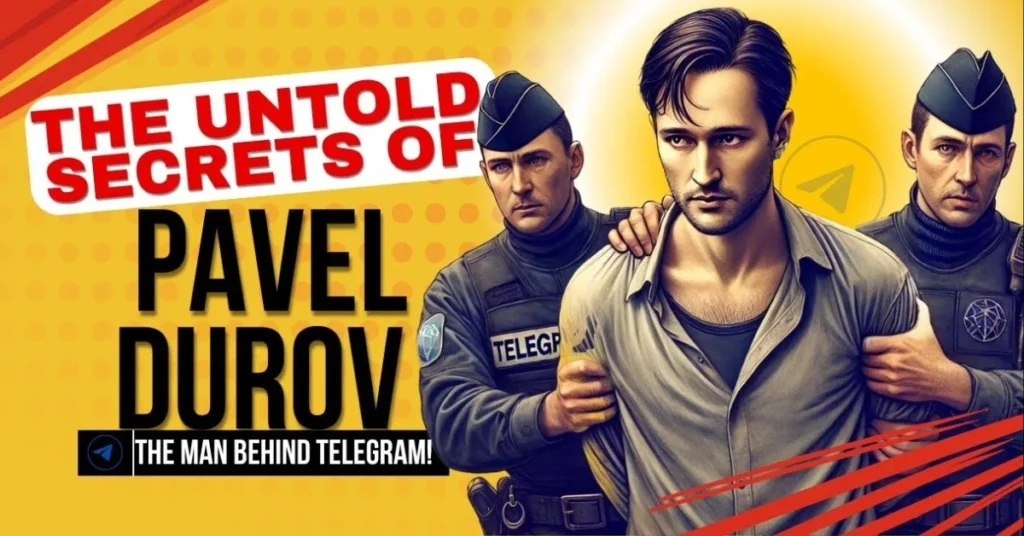
Why Pavel Durov Was Arrested in France
In a shocking turn of events, Pavel Durov, the mastermind behind the ultra-popular messaging app Telegram, found himself in handcuffs at a Paris airport, raising serious questions about the balance between digital freedom and the law.
Date and Location of Arrest: Pavel Durov was arrested on August 24, 2024, at Le Bourget airport, just outside Paris, after arriving on a private jet from Azerbaijan.
Reason for Arrest: French authorities arrested Durov as part of an ongoing investigation into Telegram’s alleged role in facilitating various criminal activities. Specific accusations include the platform’s failure to prevent the spread of child sexual abuse material, drug trafficking, and the coordination of terrorist activities. Authorities have criticized Telegram for its lack of content moderation and its refusal to cooperate with law enforcement.
Legal Context: French prosecutors have charged Durov with complicity in criminal acts due to Telegram’s insufficient moderation practices. The charges could potentially result in up to 10 years of imprisonment. Following his arrest, Durov was released on a $5.5 million bail and is required to check in at a police station twice a week while he remains in France.
Political and Public Reactions: The arrest sparked widespread outrage and concern. Critics argue that the arrest represents government overreach and an attack on digital freedom. High-profile figures such as Elon Musk and Vitalik Buterin publicly condemned the arrest, warning of a slippery slope where governments might prosecute tech CEOs for failing to monitor and control user-generated content.
Impact in Russia: Durov’s arrest has also caused alarm in Russia, where Telegram is widely used for communication, including by the military and anti-Kremlin dissidents. Some Russian media have expressed concerns that Telegram could be manipulated by Western powers, potentially turning into a “tool of NATO.” This apprehension has led to discussions about creating alternative, state-controlled messaging systems.
Durov’s Stance on Digital Privacy and Free Speech
Commitment to Free Speech and Privacy
Pavel Durov’s staunch defense of privacy, even when faced with the darker sides of the internet, has solidified his reputation as a fearless advocate for free speech, but it hasn’t come without controversy.
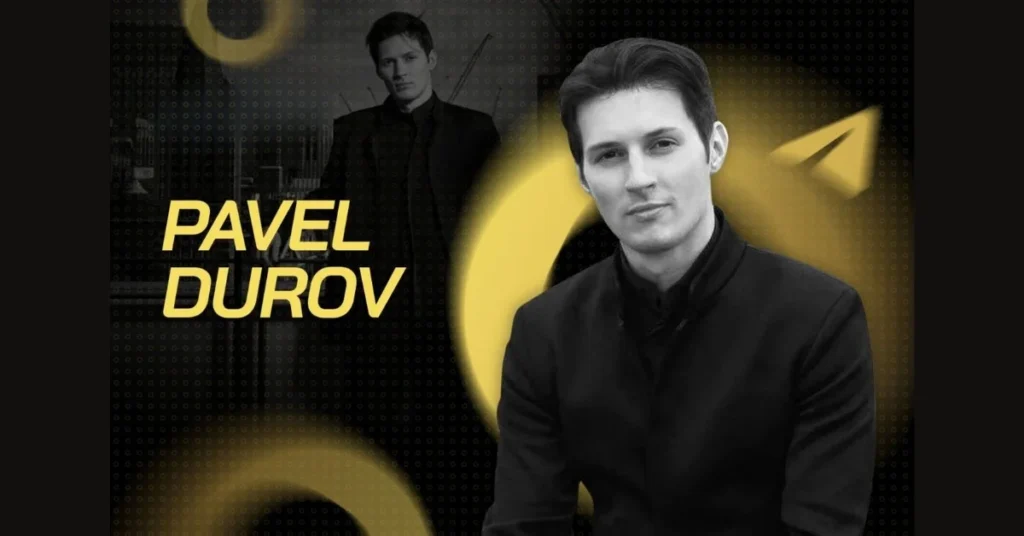
- Core Philosophy: Pavel Durov has consistently prioritized user privacy and free speech as the foundational principles of Telegram. He believes that privacy is an inalienable right, and his platform should protect users from government surveillance and censorship, regardless of the content being shared.
- Public Statements and Controversy:
- ISIS on Telegram: In 2015, when it became public knowledge that ISIS was using Telegram to communicate and recruit, Durov faced intense criticism. However, he maintained that the right to privacy outweighs the fear of bad actors misusing the platform. At a TechCrunch event that year, Durov stated, “I think that privacy, ultimately, and our right for privacy, is more important than our fear of bad things happening, like terrorism.”
- No Guilt Stance: Durov went further, expressing that he “shouldn’t feel guilty” about ISIS using Telegram, framing it as an inevitable consequence of maintaining a platform that champions privacy and free speech. This statement highlighted his commitment to his principles but also sparked significant backlash from those who felt he was downplaying the risks associated with such misuse.
- Balancing Act:
- Privacy vs. Security: Durov’s stance illustrates the challenging balance between upholding privacy and preventing the platform’s misuse. By refusing to compromise on encryption and user anonymity, Durov has positioned Telegram as a haven for free speech, especially in regions with oppressive governments. However, this same commitment has made Telegram a tool for extremists and criminal organizations, creating a moral and ethical dilemma.
- Response to Criticism: In response to growing concerns, Telegram did take steps to block dozens of ISIS-related channels, acknowledging the platform’s role in inadvertently facilitating harmful activities. This action shows that while Durov is committed to privacy, he recognizes the need for some level of intervention when faced with extreme cases of abuse.
- Impact on Telegram’s Reputation:
- Support from Privacy Advocates: Durov’s refusal to allow backdoors into Telegram and his defense of privacy have earned him widespread support from privacy advocates and free speech absolutists. They argue that compromising on these principles would open the door to greater surveillance and censorship, eroding civil liberties.
- Criticism and Concerns: Conversely, critics argue that Durov’s approach is dangerously idealistic. They contend that platforms like Telegram must take more responsibility for the content they host, especially when it comes to preventing terrorism, hate speech, and other forms of online harm. The debate continues over whether Durov’s commitment to privacy is sustainable in an increasingly regulated digital landscape.
Criticisms and Controversies
Telegram’s commitment to user privacy and freedom has made it a popular tool for many, but it has also opened the door to serious criticisms, especially concerning its use by extremist groups and the spread of illegal content.
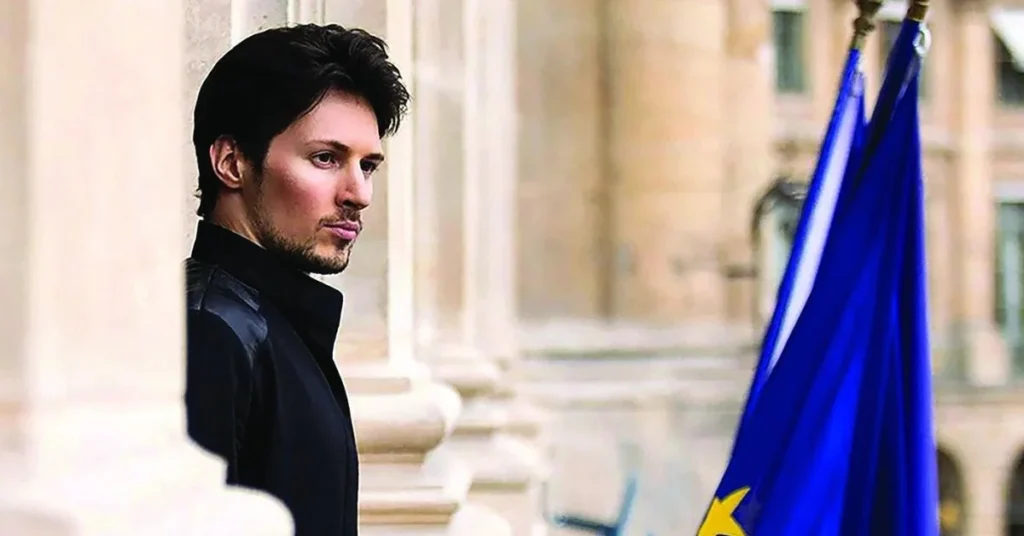
Telegram’s Dark Side: Use by Extremist Groups and Far-Right Organizations
- Platform of Choice for Extremist Groups:
- Terrorist Organizations: Telegram’s strong encryption and anonymity features have made it a favored platform for extremist groups, including ISIS, to coordinate, recruit, and disseminate propaganda. Despite efforts to curb their presence, reports indicate that such groups continue to find ways to use Telegram to communicate securely.
- Far-Right Extremists: In addition to terrorist organizations, Telegram has also become a haven for far-right extremists. Groups like the Proud Boys and neo-Nazis have used the platform to share content, organize rallies, and promote hate speech. The platform’s minimal moderation and high level of privacy appeal to these groups, allowing them to evade more heavily regulated platforms like Facebook and Twitter.
- Illegal Content on Telegram:
- Child Sexual Abuse Material (CSAM): Telegram has faced accusations of failing to adequately prevent the distribution of child sexual abuse material. Researchers, including those from the Stanford Internet Observatory, have criticized Telegram for not implementing robust content enforcement, which has allowed such illegal content to proliferate in both public and private channels.
- Drug Trafficking and Cybercrime: Reports have also surfaced about Telegram being used for drug sales and other illegal activities. The platform’s encrypted nature makes it an attractive option for those looking to conduct illegal transactions or share sensitive information without detection.
Durov’s Responses and Telegram’s Stance on Moderation
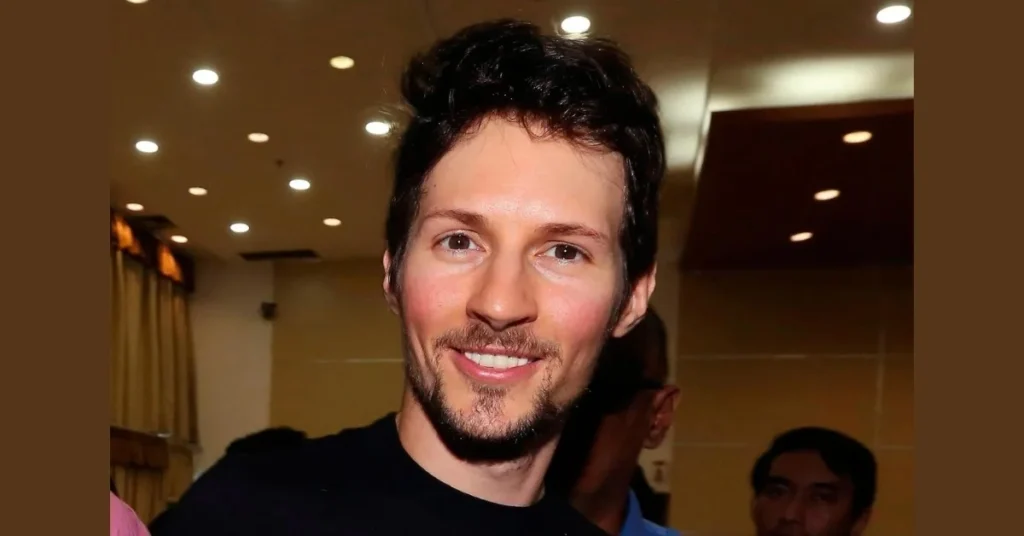
- Defending Privacy Over Moderation:
- Initial Stance on Extremist Content: Pavel Durov has long maintained that privacy and free speech are paramount, even when it comes to potentially dangerous or illegal content. His stance is rooted in the belief that everyone has a right to private communication, and that compromising this principle could lead to widespread censorship and loss of freedom.
- Comments on ISIS: Durov’s infamous 2015 comments, where he stated that he “shouldn’t feel guilty” about ISIS using Telegram, were based on his belief that privacy rights should not be compromised out of fear. This statement underscored his commitment to maintaining Telegram as a neutral platform that does not engage in censorship.
- Adjusting to Criticism:
- Blocking Extremist Channels: Faced with mounting pressure and public backlash, Telegram has taken some steps to moderate content, particularly targeting channels used by ISIS. The platform announced the closure of dozens of ISIS-related channels, signaling a willingness to act against overtly harmful content.
- Response to Illegal Content: While Telegram has made efforts to address some forms of illegal content, critics argue that these actions are insufficient. The platform’s lack of proactive moderation policies allows illegal and harmful content to continue circulating. Telegram’s reactive approach—only addressing issues when they become publicly known—has led to ongoing criticism from governments and advocacy groups.
- Ongoing Debate Over Moderation Policies:
- Balancing Act: Telegram’s approach to moderation reflects the ongoing tension between maintaining user privacy and ensuring that the platform is not exploited for criminal or extremist activities. Durov and Telegram’s leadership have to navigate these challenges while staying true to their foundational principles.
- Calls for Greater Accountability: Critics, including various governments and non-governmental organizations, continue to call for more robust moderation practices. They argue that Telegram should take more responsibility for the content shared on its platform, implementing measures to detect and remove illegal activities proactively.
Pavel Durov’s commitment to privacy has been both Telegram’s greatest strength and its most significant source of controversy. While the platform’s design has empowered users seeking secure communication, it has also enabled the spread of extremist ideologies and illegal activities.
The ongoing criticisms and calls for more stringent moderation highlight the difficult balance that Telegram must strike between protecting user rights and ensuring the safety and legality of its platform. As Telegram continues to grow, the pressure to address these issues more effectively is likely to increase, posing ongoing challenges for Durov and his team.

Introduction to Pavel Durov
Who is Pavel Durov?
Pavel Durov is a Russian tech entrepreneur and founder of Telegram, a secure messaging app known for its privacy features. He also co-founded VKontakte (VK), Russia’s largest social network. Durov is recognized for his strong stance on digital privacy and free speech.
Pavel Durov’s Impact on Social Media and Communication
| Aspect | Details |
|---|---|
| Name | Pavel Valeryevich Durov |
| Date of Birth | October 10, 1984 |
| Nationality | Russian (also holds citizenship in Saint Kitts and Nevis, UAE, and France) |
| Education | Graduated with a degree in Philology from Saint Petersburg State University in 2006 |
| Key Achievements | Co-founded VKontakte (2006), launched Telegram (2013) |
| Impact on Social Media | Revolutionized digital communication with a focus on user privacy and security; Telegram has over 900 million users |
| Innovative Features | End-to-end encryption, public channels, large group chats, and bots for automation |
| Public Image | Viewed as a libertarian advocate for digital rights; known for his minimalist lifestyle and commitment to privacy |
| Controversies | Faced legal challenges, including a recent arrest in France related to alleged criminal activities on Telegram |
| Net Worth | Estimated at $15.5 billion |
| Legacy | Influenced the development of secure messaging and social networking; inspired a generation of tech entrepreneurs |
Early Life and Education
Pavel Durov’s Early Years
Long before he became known as the “Mark Zuckerberg of Russia,” Pavel Durov’s unique upbringing set the stage for his rise as a tech icon and staunch advocate for digital freedom.
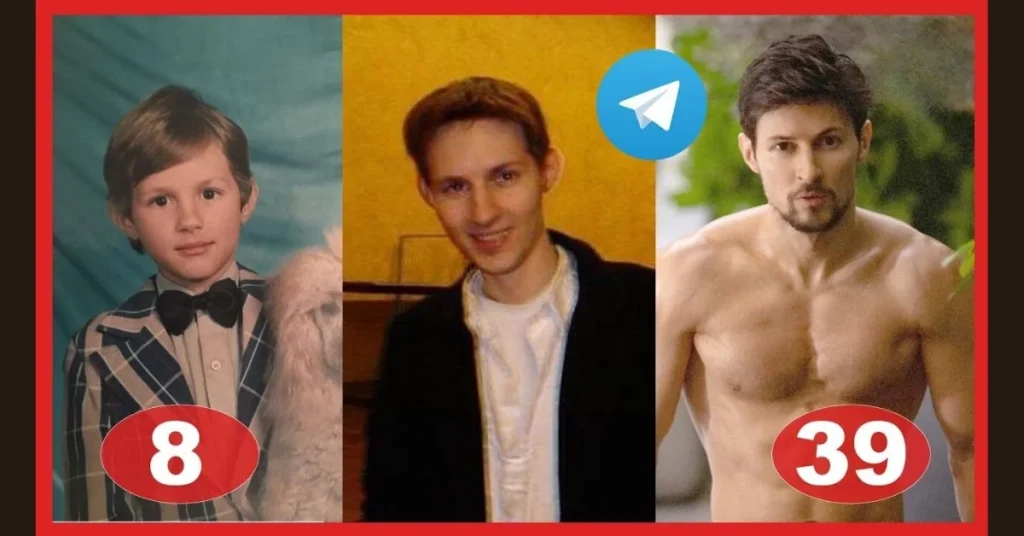
- Birth and Early Childhood:
- Birthplace and Date: Pavel Valeryevich Durov was born on October 10, 1984, in Leningrad, Russia. Leningrad, a city rich in history and culture, is known today as Saint Petersburg. Growing up in this historically significant city provided Durov with a backdrop steeped in the legacy of Russian culture and intellectual thought.
- Family Background: Durov was born into a family deeply rooted in academia. His father, Valery Durov, was a Doctor of Philological Sciences and a professor of philology, specializing in the study of classical languages and literature. This academic environment likely played a pivotal role in shaping Pavel’s intellectual curiosity and appreciation for learning.
- Childhood in Turin, Italy:
- Move to Italy: During Durov’s early childhood, his family moved to Turin, Italy, due to his father’s academic work. Valery Durov’s career took the family abroad, exposing young Pavel to different cultures and languages from an early age. This international experience would prove formative, giving him a broader worldview that would later influence his approach to business and innovation.
- Influence of Turin: Living in Turin exposed Pavel to Western ideas and a different educational environment compared to the Soviet Union. Italy’s rich cultural heritage and emphasis on intellectual pursuits likely encouraged Durov’s interest in philosophy, literature, and later, technology. These early years in Italy might have also contributed to Durov’s linguistic abilities and his capacity to navigate different cultural landscapes, an asset in his later global business endeavors.
- Intellectual Environment:
- Impact of Father’s Work: Growing up in a family with strong academic ties, Pavel was influenced by his father’s scholarly pursuits. Valery Durov’s focus on philology, the study of languages, would have exposed Pavel to complex ideas and encouraged analytical thinking from a young age. This environment fostered a respect for knowledge and intellectual debate, traits that would later become evident in Pavel’s approach to technology and business.
- Exposure to Technology: While specific details about his early exposure to technology are limited, it is likely that Durov’s intellectual curiosity led him to explore computers and programming early on. The combination of a strong academic background and exposure to the evolving world of technology set the stage for Pavel’s future as a tech entrepreneur.
- Return to Russia:
- Shaping His Identity: Returning to Russia after spending formative years abroad, Pavel brought with him a unique perspective that blended Western and Russian influences. This duality would later manifest in his work, especially in his resistance to censorship and his advocacy for privacy and free speech—values he likely absorbed during his time in Italy.
- Education and Networking: Upon returning to Russia, Pavel continued his education and later attended Saint Petersburg State University. His academic achievements and connections made during these years were instrumental in laying the groundwork for his future ventures, including the creation of VKontakte (VK) and Telegram.
The mix of academic influence, exposure to different cultures, and an early understanding of the importance of freedom and privacy laid the foundation for Durov’s path as a tech entrepreneur.
Educational Background
Pavel Durov’s academic journey was not just about earning degrees—it was the crucible where his interests in programming and social networking were forged, inspired by a strong family tradition in academia.

- Influence of Family and Early Academic Environment:
- Family’s Academic Legacy: Growing up in a family with a strong academic background profoundly influenced Pavel Durov’s educational path. His father, Valery Durov, was a respected professor of philology at Saint Petersburg State University, specializing in classical languages and literature. This environment cultivated a deep respect for knowledge, scholarly pursuit, and intellectual discussion from an early age.
- Impact of Valery Durov: Pavel’s father’s role in academia likely provided him with a unique perspective on the importance of education and critical thinking. This influence steered Pavel towards a disciplined approach to learning and a curiosity about the broader world, laying the groundwork for his later explorations into technology and social dynamics.
- Studies at Saint Petersburg State University:
- Choosing the Alma Mater: Following in his father’s footsteps, Pavel Durov chose to attend Saint Petersburg State University, one of Russia’s premier educational institutions. The university, known for its strong emphasis on humanities and sciences, provided Pavel with a robust academic foundation.
- Academic Pursuits: While specific details about Pavel’s exact field of study are not widely documented, his education at Saint Petersburg State University likely included exposure to a broad range of disciplines. This diverse academic exposure may have fostered his interdisciplinary approach to problem-solving, which would later be reflected in his innovative approach to building social networks.
- Early Interest in Programming:
- Discovering Technology: During his time at university, Pavel Durov developed a keen interest in programming. This interest was likely fueled by the rising importance of technology in the early 2000s, a period marked by rapid growth in internet accessibility and the burgeoning of social media platforms.
- Self-Taught Programmer: Like many tech innovators of his generation, Durov was largely self-taught in programming. He spent hours honing his coding skills, understanding the mechanics of software, and exploring how technology could be used to connect people in new ways.
- First Steps into Social Networking:
- Creation of spbgu.ru: One of Pavel’s early projects was the creation of spbgu.ru, a student forum for Saint Petersburg State University. This forum became highly popular among students, serving as a precursor to Durov’s later work in social networking. The success of spbgu.ru demonstrated Pavel’s ability to create digital communities and provided him with firsthand experience in managing and scaling online platforms.
- Insight into User Behavior: Working on spbgu.ru allowed Durov to gain valuable insights into user behavior, engagement, and the power of online communities. These lessons would prove critical when he later co-founded VKontakte (VK), applying what he had learned to a broader, more sophisticated social networking platform.
- Shaping Future Endeavors:
- Foundation for VK and Telegram: The combination of a strong academic background, the influence of his father, and his early success with spbgu.ru equipped Pavel with the skills and confidence needed to launch VK in 2006. His experience at Saint Petersburg State University not only provided the technical skills necessary but also instilled a desire to create platforms that could empower users and facilitate free communication.
- Focus on Privacy and Freedom: Pavel’s educational background and exposure to classical philosophy and critical thinking likely influenced his emphasis on privacy and free speech in his later projects. These principles became central to his vision for Telegram, a platform designed to offer secure, private communication free from government surveillance and censorship.
Influenced by a family deeply rooted in academia and driven by his own interests in programming and social networking, Durov’s university years were a period of exploration and growth. The skills and insights he gained during this time would not only fuel his innovative spirit but also help establish the foundational values of privacy and freedom that define his later ventures, VK and Telegram.
Pavel Durov’s Personal Life
Pavel Durov’s Family and Relationships
While Pavel Durov is often in the spotlight for his groundbreaking work with VKontakte and Telegram, his family and personal relationships have played a significant role in shaping his journey as a tech entrepreneur.
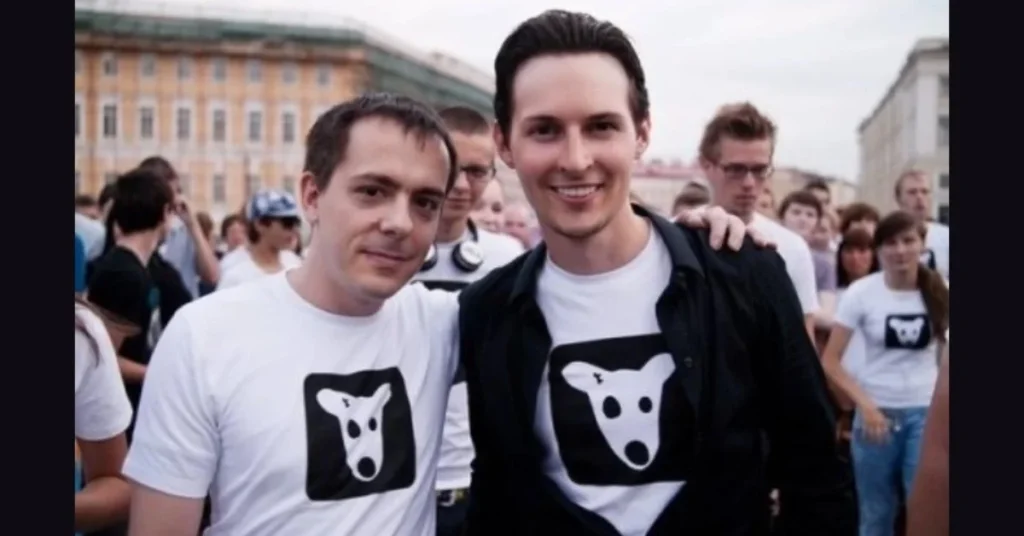
Nikolai Durov: Brother and Collaborator
Nikolai Durov, Pavel’s elder brother, has been a significant figure in Pavel’s life and career. Their collaboration began with the founding of VKontakte in 2006, where Nikolai served as the lead developer and technical architect. His expertise in programming and system design was crucial in establishing VK as Russia’s largest social network.
- Role in Telegram: After Pavel left VKontakte due to conflicts with the Russian government, Nikolai joined him in founding Telegram in 2013. Nikolai’s technical contributions, particularly in developing the MTProto encryption protocol, were vital for Telegram’s focus on privacy and secure communication.
- Shared Background: Both brothers were recognized as mathematical prodigies from a young age, with Nikolai gaining fame for his achievements in mathematics competitions. Their shared intellectual background has fostered a strong bond, allowing them to work effectively together in the tech industry.
Personal Life: Ex-Wife and Children
Pavel Durov was previously married to Daria Bondarenko, whom he met while studying at Saint Petersburg State University. The couple has two children together:
- Alina Durov: Born in 2009.
- Mikhail Durov: Born in 2010.
Following their separation, Daria Bondarenko has been living in Barcelona, Spain, with their children. In 2021, Russian Forbes ranked Alina and Mikhail among the richest heirs in Russia, highlighting the financial legacy they inherit from their father.
Allegations Involving Irina Bolgar
In July 2024, a new controversy emerged involving Irina Bolgar, a woman who claimed to have three children with Pavel Durov. Bolgar contacted Forbes with documentation to support her claims, including a family photo taken in 2020.
- Legal Action: In August 2024, Bolgar filed a lawsuit against Durov in Switzerland, alleging that he had abused her youngest son multiple times between 2021 and 2022. She also claimed that Durov had stopped paying child support of €150,000 per month, which he had previously provided.
- Durov’s Response: Durov has publicly stated that he has fathered more than 100 children through sperm donation across 12 countries since 2010. This revelation has added to the intrigue surrounding his personal life and relationships.
Pavel Durov’s Lifestyle Choices
Beyond his role as a tech innovator, Pavel Durov’s lifestyle choices reflect his deep-seated beliefs in personal freedom, simplicity, and a commitment to living life on his own terms.

Inside Pavel Durov’s Lifestyle: Values, Choices, and Philosophies
- Libertarian Beliefs:
- Philosophical Foundation: Pavel Durov is known for his libertarian views, which emphasize minimal government interference, individual liberty, and the right to privacy. These beliefs are not just theoretical; they actively shape his approach to both his personal life and his business ventures. Durov’s commitment to free speech, privacy, and user control on platforms like Telegram stems directly from his libertarian ideals. He has often spoken out against government overreach and the surveillance state, arguing that people should have the freedom to communicate and express themselves without interference.
- Impact on Business Decisions: Durov’s libertarianism is a driving force behind his resistance to censorship and refusal to comply with government demands for data access. His vision for Telegram as a secure, privacy-focused platform is a direct extension of his belief that individuals should have control over their information and communication.
- Vegetarian Diet and Health Choices:
- Vegetarian Lifestyle: Pavel Durov is a committed vegetarian, a choice he has made in alignment with his beliefs about health, ethics, and sustainability. His diet is not just about avoiding meat but is part of a broader philosophy that values a mindful and ethical approach to living. By choosing a vegetarian lifestyle, Durov aligns himself with a growing global movement that prioritizes animal welfare, environmental sustainability, and personal health.
- Abstention from Alcohol and Drugs: In addition to being a vegetarian, Durov abstains from alcohol, recreational drugs, and even caffeine. His avoidance of these substances reflects his commitment to maintaining clarity of mind and a healthy body. Durov’s lifestyle choices underscore his belief in discipline and self-control, which are essential components of his personal philosophy.
- Ascetic Lifestyle and Minimalism:
- Embracing Simplicity: Durov is known for his ascetic lifestyle, which is characterized by a minimalistic approach to material possessions and a focus on simplicity. He has often emphasized the importance of freedom from material wealth and possessions, suggesting that true happiness and fulfillment come from within rather than from external sources. This minimalist approach is not just about owning fewer things but about reducing distractions and focusing on what truly matters.
- Living Without Attachments: Durov’s lifestyle choices reflect his desire to live without attachments that could limit his freedom. By minimizing his reliance on material possessions, he seeks to reduce the potential for external influences to control or dictate his life. This approach allows Durov to maintain a high degree of independence, aligning with his libertarian belief in personal autonomy.
- Emphasis on Freedom:
- Freedom as a Core Value: For Pavel Durov, freedom is more than a political concept; it is a guiding principle for his life and work. His dedication to personal freedom is evident in his lifestyle choices, which prioritize autonomy, self-reliance, and independence. Whether through his business practices, dietary habits, or minimalist living, Durov consistently aligns his actions with his belief in freedom.
- Resisting Conventional Norms: Durov’s lifestyle choices often go against conventional norms. His rejection of material wealth, abstention from common social substances, and commitment to simplicity set him apart from many of his peers in the tech industry. These choices highlight his desire to live authentically and stay true to his values, regardless of societal expectations.
- Influence on Public Perception:
- Cultivating a Unique Persona: Durov’s lifestyle choices contribute to the public perception of him as a unique and enigmatic figure in the tech world. His ascetic lifestyle, commitment to privacy, and libertarian beliefs create an image of a tech leader who is not driven by the same motivations as many others in his industry. Instead of seeking fame, wealth, or power, Durov appears to be driven by a deeper desire to promote freedom and autonomy.
- Inspiring Others: Pavel Durov’s approach to life serves as an inspiration to those who value independence, simplicity, and authenticity. His commitment to living according to his principles, regardless of external pressures, resonates with individuals who seek to live purposefully and with integrity.
Pavel Durov’s lifestyle choices paint a picture of a man deeply committed to his principles. His libertarian beliefs, coupled with a vegetarian diet, abstention from substances, and a minimalist lifestyle, reflect a desire to live freely and authentically.
Durov’s Height and Public Appearance
Known for his sharp intellect and commitment to privacy, Pavel Durov’s public image is also shaped by his distinctive physical appearance and how he presents himself to the world.

Physical Appearance
- Height: Durov’s height is commonly reported as 5’9″ (176 cm) . Some sources vary slightly, suggesting he may be around 5’10” (178 cm) . Regardless, his height aligns with the average for men in many countries.
- Build: Durov maintains an athletic build, weighing around 74 kg (163 lbs) . His commitment to a healthy lifestyle, including a vegetarian diet and abstention from alcohol and drugs, reflects his focus on physical fitness.
- Distinctive Features: Durov is known for his dark brown hair and eyes, often sporting a trimmed beard. His style is minimalist, frequently wearing black clothing, which has drawn comparisons to the character Neo from “The Matrix” . This choice of attire enhances his image as a tech visionary and aligns with his ascetic lifestyle.
Public Perception
Pavel Durov’s public image is shaped significantly by his lifestyle choices and personal beliefs. He is often described as a libertarian, which influences both his professional endeavors and personal life. His emphasis on privacy, freedom of speech, and individual rights resonates with many users of Telegram, contributing to a positive perception among advocates of digital rights.
- Minimalist Lifestyle: Durov’s ascetic lifestyle is characterized by a focus on experiences rather than material possessions. He has publicly stated his intention to live simply, which is reflected in his choice to travel light and maintain a minimalist wardrobe.
- Public Persona: Durov’s public appearances and statements often emphasize his commitment to privacy and security in communication. His willingness to stand up against government pressure and censorship has earned him admiration from many, particularly in regions with oppressive regimes.
- Controversies and Challenges: Despite his positive image among supporters, Durov has faced criticism and controversy, particularly regarding Telegram’s use by extremist groups and the legal challenges he has encountered. His arrest in France in 2024 further complicated his public perception, leading to debates over the responsibilities of tech entrepreneurs in moderating content on their platforms.
Pavel Durov’s Nationality and Citizenship
Pavel Durov’s journey from Russia to the world has seen him collect multiple citizenships, reflecting his quest for freedom and a lifestyle unbound by the constraints of any single nation.
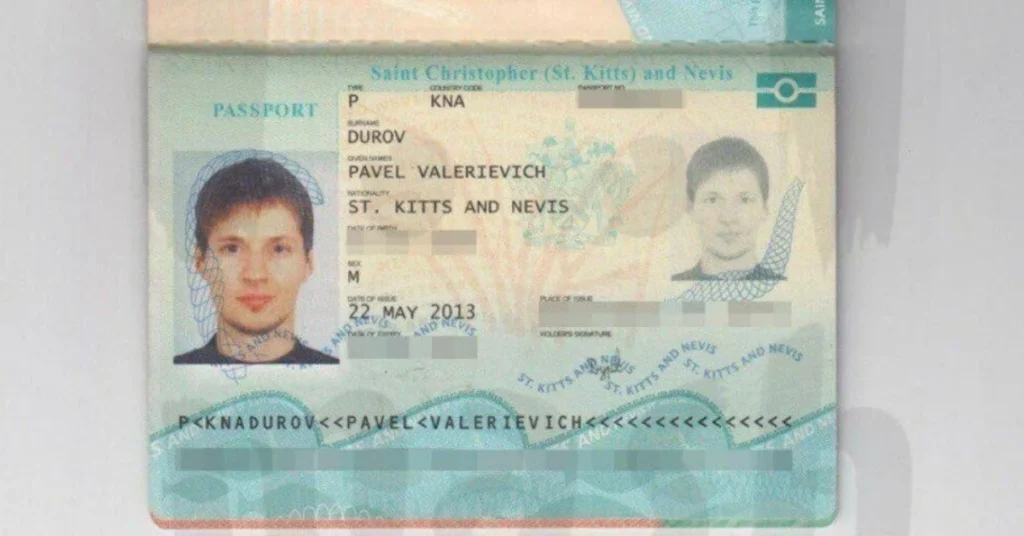
Embracing a Global Identity
- Multiple Citizenships:
- Russian Citizenship: Pavel Durov was born in Leningrad, Soviet Union (now Saint Petersburg, Russia), making him a Russian citizen by birth. His early life, education, and initial success with VKontakte (VK) were deeply rooted in Russia. Despite his later conflicts with Russian authorities and his departure from the country, Durov has retained his Russian citizenship, reflecting his cultural and personal ties to his homeland.
- Saint Kitts and Nevis Citizenship: After his departure from Russia in 2014, Durov sought citizenship in Saint Kitts and Nevis, a small Caribbean nation. He obtained this citizenship by investing $250,000 in the country’s Sugar Industry Diversification Foundation, a common path for wealthy individuals seeking dual citizenship. Saint Kitts and Nevis offers a passport that allows visa-free travel to many countries, providing Durov with greater mobility and a means to operate internationally without relying solely on his Russian passport.
- UAE Citizenship: In 2017, Durov relocated to Dubai, United Arab Emirates, where Telegram’s headquarters are currently based. His move to Dubai was strategic, driven by the city’s business-friendly environment, high security, and tax advantages. In 2021, Durov was granted UAE citizenship, which further solidified his ties to the region. UAE citizenship provides Durov with a stable base of operations and reflects his ongoing commitment to establishing Telegram as a global entity.
- French Citizenship: Durov obtained French citizenship in 2021 under somewhat unusual circumstances. Reports suggest that his citizenship was granted through the “merit foreigner” procedure, which is rarely used but allows the French government to award citizenship to individuals who have made significant contributions to France’s international influence. Durov’s acquisition of French citizenship aligns with his desire for international mobility and reflects his standing as a global tech entrepreneur.
- Reasons for Moving to Dubai:
- Business-Friendly Environment: Dubai’s reputation as a global business hub was a key factor in Durov’s decision to move there. The city offers a favorable environment for tech companies, including modern infrastructure, high levels of security, and a strategic location that provides access to both European and Asian markets. Dubai’s commitment to innovation and its efforts to attract tech talent align with Durov’s vision for Telegram as a leading global communication platform.
- Tax Advantages: The UAE’s tax policies, which include no income tax, are highly attractive to entrepreneurs and businesses. Moving to Dubai allowed Durov to benefit from these tax advantages, enabling him to reinvest more resources into the growth and development of Telegram. This financial freedom supports Durov’s ability to maintain Telegram’s independence from external investors, thereby avoiding the pressures that might compromise the platform’s commitment to privacy and user autonomy.
- Political Neutrality: Dubai’s political neutrality makes it an appealing location for someone like Durov, who values independence and freedom from governmental influence. The UAE provides a stable and relatively apolitical environment, reducing the risk of government interference in Telegram’s operations. This neutrality aligns with Durov’s principles of maintaining a platform that is free from political pressure and able to uphold its commitment to privacy and free speech.
- Lifestyle in Dubai:
- High-Quality Living Standards: Dubai offers a high quality of life, with luxury amenities, world-class infrastructure, and a cosmopolitan environment. For Durov, Dubai provides a comfortable and secure base from which to run Telegram’s operations. The city’s modern facilities and international community make it an ideal location for a tech entrepreneur who values both convenience and connectivity.
- Privacy and Security: Dubai is known for its high levels of security and privacy, which are important to Durov given his personal and professional emphasis on these values. Living in Dubai allows Durov to enjoy a degree of personal privacy and safety that aligns with his overall philosophy. The city’s strict laws and enforcement measures contribute to a secure environment, making it a suitable choice for someone who has faced threats and pressure from governments in the past.
- Continued Commitment to Simplicity: Despite living in one of the world’s most luxurious cities, Durov maintains his commitment to a minimalist lifestyle. He continues to prioritize simplicity and freedom from material possessions, focusing instead on his work and personal philosophy. Dubai provides Durov with the infrastructure and support he needs without compromising his values.
- Impact of Multiple Nationalities:
- Mobility and Freedom: Holding multiple citizenships allows Durov significant freedom of movement and the ability to operate internationally without the constraints that might be imposed by a single country. This mobility is crucial for Durov, whose work with Telegram requires a global perspective and the ability to navigate different political and regulatory environments.
- Strategic Advantage: Multiple citizenships also provide Durov with a strategic advantage, allowing him to choose the most favorable jurisdictions for his personal and business interests. By diversifying his national affiliations, Durov can mitigate risks and ensure that he remains independent and resilient against political and economic pressures.
- Reflection of Global Identity: Durov’s multiple citizenships reflect his identity as a global citizen. His work with Telegram has a global impact, and his personal choices mirror this international outlook. By holding citizenships in diverse countries, Durov exemplifies the modern, borderless nature of technology and entrepreneurship.
By holding multiple nationalities, Durov embodies the modern global citizen, unbound by traditional national constraints and able to navigate the complexities of the tech world with agility and foresight.
Pavel Durov’s Net Worth and Business Ventures
Pavel Durov’s Estimated Net Worth
Pavel Durov, the founder of Telegram and co-founder of VKontakte (VK), has amassed a substantial fortune over the years. His net worth is estimated to be around $15.5 billion as of 2024, making him one of the wealthiest individuals in the tech industry.
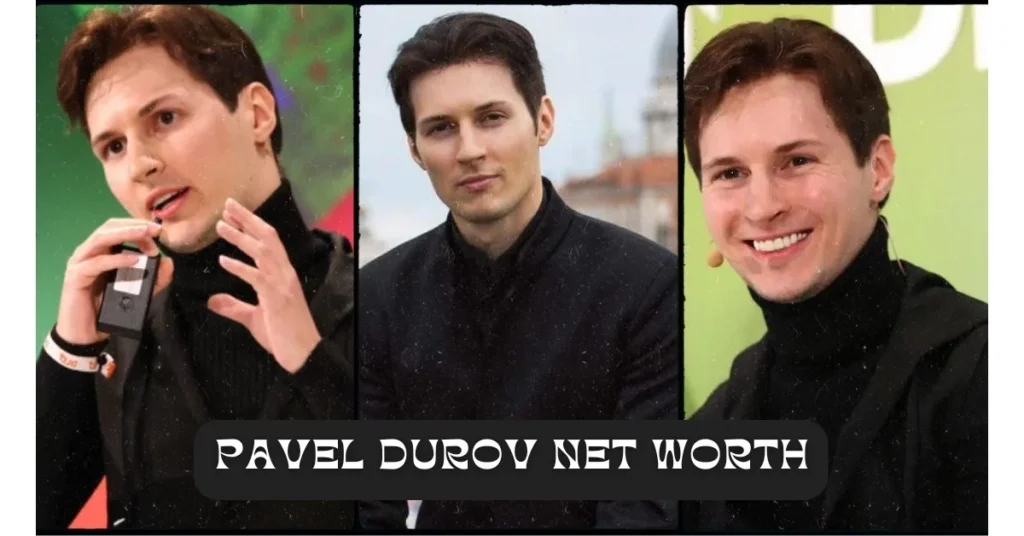
- Early Wealth Accumulation with VKontakte (VK):
- Founding of VK: Pavel Durov co-founded VKontakte (VK) in 2006 with his brother Nikolai Durov and business partners Vyacheslav Mirilashvili and Lev Binzumovich Leviev. VK quickly became Russia’s leading social networking platform, akin to Facebook, capturing a large user base and becoming a cultural phenomenon. By 2008, VK had surpassed its competitors, attracting millions of users and solidifying its position as Russia’s most popular social network.
- Monetization and Growth: VK’s growth was accompanied by significant monetization efforts. The platform generated revenue through targeted advertising, premium accounts, and paid services, making it a profitable venture. By the time Pavel Durov was forced out of VK in 2014, the company was valued at around $3 billion. Although Durov sold his remaining shares to United Capital Partners (UCP) and later to Mail.ru Group, his initial involvement and stake in the company contributed significantly to his early wealth accumulation.
- Transition to Telegram:
- Founding of Telegram: After leaving VK, Durov used his experience and resources to launch Telegram in 2013. Initially funded by Durov himself, Telegram was designed to be a secure, privacy-focused messaging platform. Unlike VK, which had a clear monetization strategy from early on, Telegram started as a non-profit endeavor, emphasizing free and secure communication over revenue generation.
- No Monetization Pressure: For many years, Telegram operated without a clear revenue model, funded primarily by Durov’s personal wealth. This allowed the platform to grow without the immediate pressure to monetize, which is often seen as compromising the user experience or privacy. Telegram’s funding strategy was to remain independent of investors who might push for changes contrary to its core values.
- Telegram’s Explosive Growth and Valuation:
- User Base Expansion: Despite the lack of a traditional revenue model, Telegram’s user base grew rapidly, driven by its strong commitment to privacy, free speech, and innovative features. By early 2021, Telegram had over 500 million active users, and this number has since surpassed 900 million. The platform’s popularity increased notably during periods of public concern over privacy policies of other messaging apps, positioning Telegram as a trusted alternative.
- Valuation and Market Potential: As of 2023, Telegram was valued at between $30 billion and $50 billion, according to various estimates. This valuation is based on its substantial user base, high engagement levels, and potential for monetization through services such as premium subscriptions, advertising on public channels, and other value-added features. Telegram’s market potential has made it an attractive prospect for investors, even though Durov has remained cautious about accepting outside investment.
- Wealth Accumulation through Innovation:
- Pavel Durov’s Net Worth: Durov’s net worth has been significantly influenced by his ownership stakes in both VK and Telegram. As of 2023, Forbes estimated Pavel Durov’s net worth at around $11.5 billion. This figure reflects his share in Telegram’s potential market value, as well as the returns from his exit from VK. By 2024, his net worth had grown to approximately $15.5 billion, making him one of the wealthiest individuals in the tech industry.
- Retaining Ownership: A key factor in Durov’s wealth accumulation is his decision to retain a majority ownership of Telegram. By keeping control over the company, Durov ensures that he can steer its direction according to his values while also benefiting financially from its success. This ownership strategy has allowed him to balance personal wealth accumulation with his commitment to maintaining Telegram’s principles of privacy and user autonomy.
- Future Wealth Prospects:
- Potential Monetization Strategies: Telegram has begun exploring monetization avenues that align with its user-first philosophy. These include premium features, sponsored messages, and potential enterprise solutions. As Telegram continues to expand its user base and refine its monetization strategies, the platform’s value is likely to increase, further boosting Durov’s net worth.
- Long-Term Vision: Durov’s long-term vision for Telegram includes maintaining its independence and avoiding the pitfalls of excessive commercialization. This approach may limit immediate revenue potential but is likely to sustain user trust and platform integrity, which are crucial for long-term success. As such, Durov’s wealth is not just a reflection of current valuations but also a bet on the future of secure and private digital communication.
Involvement in Cryptocurrency
Pavel Durov’s foray into the world of cryptocurrency with the ambitious Gram token and Telegram Open Network (TON) promised to revolutionize the financial landscape, but regulatory hurdles turned the dream into a cautionary tale.
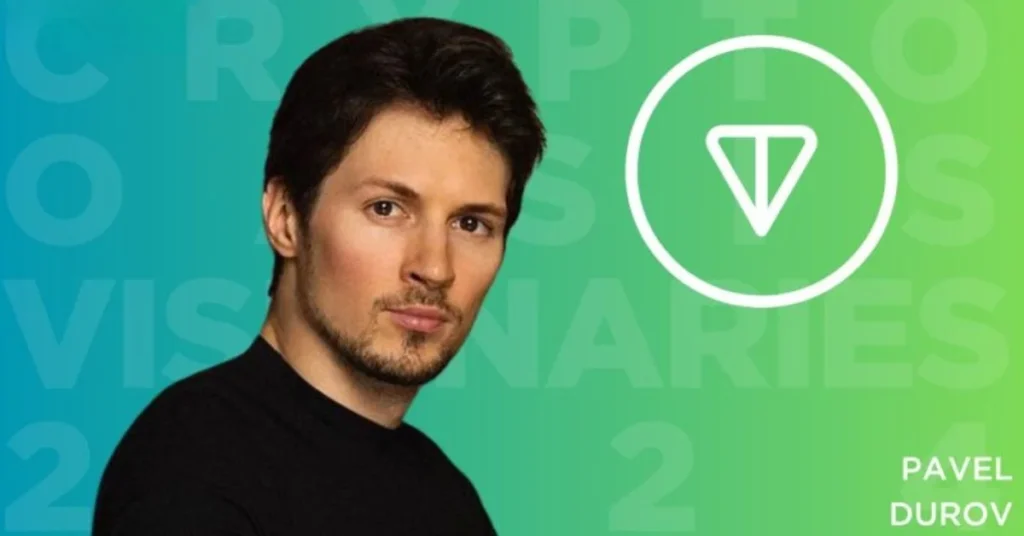
Diving into Pavel Durov’s Cryptocurrency Ventures
- Introduction to Gram and TON:
- Concept and Vision: In January 2018, Pavel Durov announced plans to launch the Gram cryptocurrency and the Telegram Open Network (TON). The vision behind TON was to create a decentralized blockchain platform that could support a wide range of services, including payments, file storage, and decentralized applications (dApps). Gram was intended to be the native cryptocurrency of this network, facilitating fast, secure, and scalable transactions within the TON ecosystem.
- Ambition for Decentralization: Durov’s involvement in cryptocurrency stemmed from his commitment to decentralization and privacy. He envisioned TON as a solution to the limitations of existing blockchain platforms like Bitcoin and Ethereum, aiming to offer a more efficient and scalable alternative. TON was designed to integrate seamlessly with Telegram, leveraging its massive user base to drive adoption of the Gram token and make cryptocurrency more accessible to the general public.
- Fundraising and Initial Success:
- Record-Breaking Initial Coin Offering (ICO): To fund the development of TON, Telegram held a private ICO, which quickly became one of the largest in history. By early 2018, Telegram had raised an astonishing $1.7 billion from investors worldwide. The ICO attracted interest from some of the biggest names in venture capital and private equity, eager to participate in what was seen as one of the most promising cryptocurrency projects to date.
- Investor Enthusiasm: The excitement around Gram and TON was fueled by Telegram’s existing success and reputation as a privacy-focused platform. Investors believed that Durov’s vision for a decentralized ecosystem could significantly disrupt the digital payments and blockchain industry. The anticipation of Gram becoming a widely adopted digital currency within Telegram’s vast network of users added to the project’s appeal.
- Regulatory Challenges and SEC Intervention:
- SEC Lawsuit: In October 2019, the U.S. Securities and Exchange Commission (SEC) filed a lawsuit against Telegram, seeking to halt the distribution of Gram tokens. The SEC argued that Telegram’s ICO constituted an unregistered securities offering, violating U.S. securities laws. The regulatory body claimed that Gram tokens were, in effect, investment contracts and should have been registered as securities.
- Legal Battle and Injunction: Telegram contested the SEC’s claims, arguing that Gram tokens were not securities but rather a currency intended for use within the TON ecosystem. Despite Telegram’s defense, a U.S. federal judge sided with the SEC in March 2020, issuing a preliminary injunction to prevent Telegram from distributing the tokens. This ruling was a significant blow to the project, as it prohibited Telegram from launching TON as planned.
- Outcomes and Project Termination:
- Abandoning the Project: In May 2020, facing insurmountable regulatory hurdles and ongoing legal battles, Pavel Durov announced that Telegram would officially terminate the TON project. Durov expressed frustration with the regulatory environment, particularly the U.S. government’s stance, which he felt was stifling innovation and preventing the development of decentralized solutions. He acknowledged that the court’s decision made it impossible to move forward with the launch of TON and Gram in a way that complied with U.S. regulations.
- Refunding Investors: Following the termination of the project, Telegram offered refunds to investors. The company returned $1.2 billion to investors who participated in the ICO, with the option for some to receive a 110% refund if they deferred repayment for 12 months. This move was an effort to maintain investor trust and mitigate the financial fallout from the project’s cancellation.
- Impact and Legacy:
- Lessons for the Crypto Industry: The rise and fall of Gram and TON serve as a significant case study in the challenges of launching a cryptocurrency under the scrutiny of global regulators. The SEC’s intervention highlighted the complexities of navigating regulatory frameworks, especially for projects aiming to operate on a global scale. Durov’s experience underscores the importance of compliance and the potential risks that regulatory actions pose to innovative blockchain initiatives.
- Continuing Interest in Decentralization: Despite the setback with TON, Pavel Durov’s commitment to decentralization and privacy remains strong. Telegram continues to explore ways to integrate decentralized technologies into its platform, albeit more cautiously. The experience has likely influenced how Durov and other tech entrepreneurs approach cryptocurrency and blockchain ventures, emphasizing the need for strategic planning and regulatory engagement.
- Influence on Future Projects: The TON experience may also shape the future of blockchain projects, particularly those seeking to avoid similar regulatory pitfalls. The lessons learned from TON could inform the development of new decentralized platforms that are better prepared to address regulatory concerns from the outset.
Other Business Ventures and Investments
While Pavel Durov’s primary focus has been on Telegram, he has also engaged in other business ventures and investments over the years. These initiatives showcase his diverse interests and entrepreneurial spirit beyond the messaging platform.
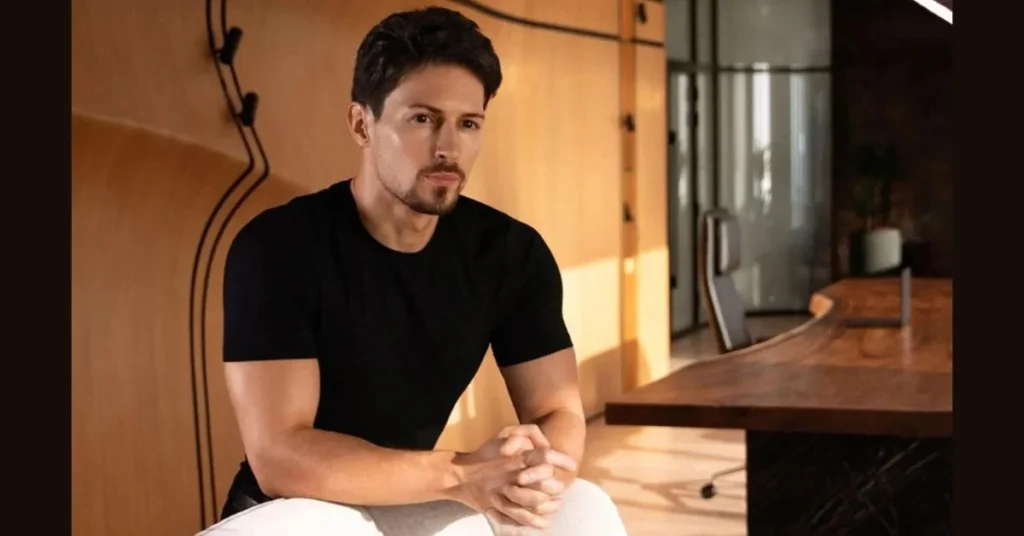
Early Entrepreneurial Projects
During his university years at Saint Petersburg State University, Durov created two notable websites that foreshadowed his future success:
- durov.com: A comprehensive database of educational materials for his major courses, providing valuable resources for fellow students.
- spbgu.ru: A platform designed to facilitate communication among students and faculty at the university, featuring personal accounts with profiles, friend lists, and blogging capabilities, similar to early social networking sites.
These projects demonstrated Durov’s technical skills and entrepreneurial mindset even before founding VKontakte and Telegram.
Investments and Diversification
After leaving Russia in 2014, Durov diversified his investments to ensure the stability of his wealth. While Telegram remains his primary focus, he has allocated resources to other ventures:
- Real Estate: Durov has invested in real estate, particularly in Dubai, where Telegram’s headquarters are located. His properties serve as both personal residences and investments.
- Cryptocurrency: Despite the challenges faced by his Gram cryptocurrency and TON platform, Durov maintains an interest in blockchain technology and its potential applications.
Future Plans and Ambitions
As Telegram continues to grow and evolve, Durov has hinted at potential future plans and business interests:
- Expansion into Other Services: Durov has expressed interest in expanding Telegram’s offerings beyond messaging, exploring opportunities in areas such as video streaming, online gaming, and e-commerce.
- Decentralization and Blockchain: While his previous cryptocurrency venture, TON, was abandoned due to regulatory challenges, Durov remains committed to exploring the potential of decentralized technologies and their applications within Telegram.
- Philanthropy: Durov has made significant charitable donations in the past, such as a million dollars to the Wikimedia Foundation in 2011 to support Wikipedia. He may continue to allocate resources to philanthropic causes in the future.
The Rise of VKontakte (VK)
Founding of VKontakte (VK)
In 2006, a young Pavel Durov, inspired by the growing influence of social networks, set out to create Russia’s answer to Facebook—what would become VKontakte, a platform that would dominate the Russian-speaking internet.
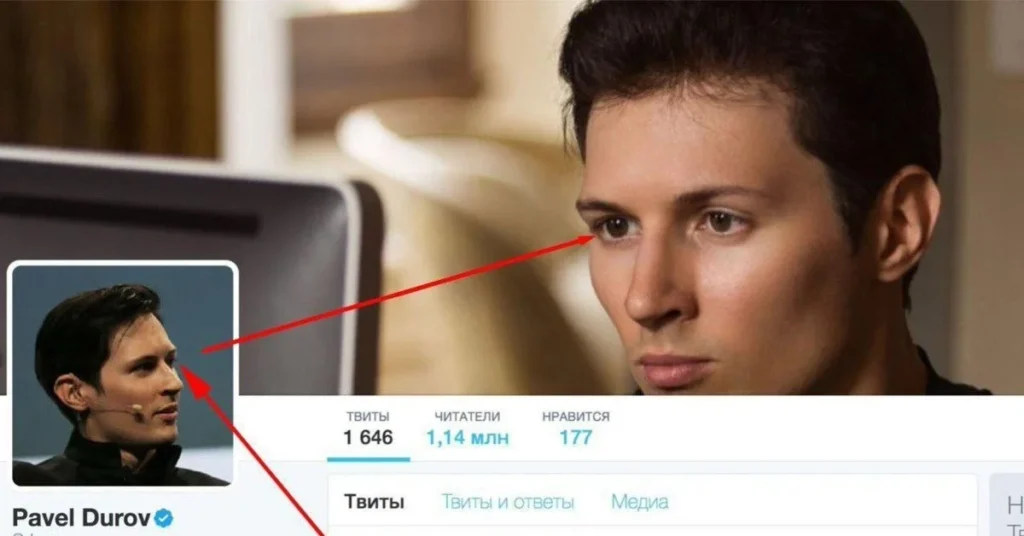
The Genesis of VKontakte: Bringing Social Networking to Russia
- Inspiration Behind VKontakte (VK):
- Seeing the Potential in Social Media: During the early 2000s, social networking platforms were beginning to change the way people connected online. Pavel Durov, recognizing the power of these platforms, was inspired by the success of Facebook and saw an opportunity to create a similar network tailored to the Russian market. His vision was to develop a platform that catered to the needs of Russian-speaking users, offering them a space to connect, share, and communicate.
- Influence of spbgu.ru: Durov’s earlier project, the student forum spbgu.ru, provided him with valuable experience and insights into how online communities functioned. The success of this forum demonstrated the demand for online social spaces and cemented Durov’s belief in the potential of a broader social networking site.
- Collaboration with Vyacheslav Mirilashvili and Lev Binzumovich Leviev:
- Team Formation: In 2006, Durov joined forces with two former classmates: Vyacheslav Mirilashvili and Lev Binzumovich Leviev. Mirilashvili, who had been exposed to the growing popularity of Facebook in the United States, saw the potential for a similar platform in Russia. He brought this idea to Durov, who was already contemplating how to scale his student forum into a larger social network.
- Roles and Contributions:
- Vyacheslav Mirilashvili: He provided initial funding and strategic vision for VK. His understanding of the social networking landscape in the West influenced VK’s early design and functionality, aiming to replicate the success of Facebook while adapting it for Russian users.
- Lev Binzumovich Leviev: As a business partner, Leviev played a crucial role in the financial and business development aspects of VK. His background in international business helped VK navigate the complexities of scaling the platform and securing additional funding.
- Nikolai Durov’s Technical Leadership:
- Bringing in the Technical Expertise: Pavel’s older brother, Nikolai Durov, joined the VK team as the chief architect and lead developer. Nikolai’s background as a mathematician and his accomplishments in competitive programming made him the ideal candidate to handle VK’s technical challenges.
- Development of VK’s Infrastructure: Nikolai was responsible for building VK’s technical infrastructure from the ground up. His expertise ensured that VK could handle rapid user growth while maintaining stability and performance. The robust and scalable system he developed allowed VK to quickly become the dominant social network in Russia.
- Security and Features: Nikolai’s focus on security and user experience contributed to VK’s popularity. Under his technical leadership, VK developed features that were both innovative and appealing, including advanced privacy settings, multimedia sharing capabilities, and an intuitive user interface.
- Launching VKontakte:
- Initial Launch: VK was officially launched in September 2006, initially targeting university students, similar to Facebook’s early approach. The platform quickly gained traction due to its user-friendly design and the novelty of social networking among Russian-speaking users.
- Rapid Growth: Within a year, VK had amassed over a million users, and by 2008, it had become the most popular social networking site in Russia, surpassing rivals like Odnoklassniki. VK’s success was driven by its adaptability to user needs, continuous feature enhancements, and the widespread adoption of social media in Russia.
- The Role of Innovation and Adaptation:
- Unique Features: VK differentiated itself by offering features that appealed specifically to Russian users, such as the ability to share and download music and videos, which were less regulated than in Western platforms. This openness attracted a broad user base, from teenagers to businesses and public figures.
- Community Building: VK emphasized creating communities and groups, allowing users to connect over shared interests and causes. This focus on community building made VK not just a social network but a central part of daily life for millions of Russians.
Growth and Popularity
Launched in 2006 as a university project, VKontakte rapidly grew to become Russia’s most popular social network, capturing the hearts of millions and setting the stage for a new era of online social interaction.

The Rise of VKontakte: From Humble Beginnings to Social Media Giant
- Rapid User Growth and Adoption:
- Launch and Early Days: VKontakte (VK) was officially launched in September 2006 by Pavel Durov and his team, initially targeting university students, much like Facebook’s early strategy. This focus on the student demographic provided a solid foundation, as it attracted tech-savvy young people who were eager to explore new ways of staying connected online.
- Explosive Growth: VK’s user base grew quickly. By July 2007, less than a year after its launch, VK had reached one million users. This rapid growth continued, and by April 2008, VK boasted ten million users. The platform’s exponential growth outpaced other social networks in Russia, allowing VK to overtake Odnoklassniki as the country’s most popular social networking service by the end of 2008.
- Key Features That Drove Popularity:
- User-Friendly Interface: One of the significant factors behind VK’s success was its intuitive, user-friendly interface. VK’s design was clean, easy to navigate, and familiar, which helped new users quickly adapt to the platform. This focus on usability made VK appealing to a broad range of users, from tech-savvy teenagers to older adults looking to reconnect with friends and family.
- Multimedia Capabilities: VK set itself apart from other social networks by offering robust multimedia sharing capabilities. Users could upload and share photos, videos, and, notably, music files with ease. This feature was particularly appealing in Russia, where access to free music and video content was in high demand. VK’s relatively lax stance on content sharing attracted users who enjoyed the freedom to share and access a wide range of media.
- Privacy Options: VK offered advanced privacy settings, allowing users to control who could see their profiles, posts, and personal information. This level of control over privacy was ahead of its time and appealed to users who valued their privacy but still wanted to be part of the social networking experience.
- Community and Group Features: VK emphasized the creation of communities and groups, where users could gather around shared interests, causes, or hobbies. These groups became a vital part of VK’s ecosystem, fostering a sense of belonging and facilitating interactions among like-minded individuals. This feature turned VK into more than just a social networking site; it became a community hub where people could find and connect with others who shared their passions.
- Strategic Adaptation and Innovation:
- Localized Content and Features: VK’s ability to adapt its features to suit the preferences of Russian-speaking users was a key element of its success. The platform was designed with a deep understanding of the local culture, making it more relatable and accessible to its target audience. This localization included features like support for Cyrillic script, tailored content suggestions, and a culturally relevant user experience.
- Mobile Accessibility: As mobile internet usage began to rise, VK adapted by developing a mobile-friendly version of its platform and releasing mobile apps. This move ensured that VK remained accessible to users on the go, maintaining its relevance as the landscape of internet usage shifted towards mobile devices.
- The Role of Viral Growth:
- Word of Mouth and Network Effects: VK’s rapid growth was significantly driven by word of mouth. Users who enjoyed the platform invited their friends and family to join, creating a snowball effect. This viral growth was fueled by VK’s ability to meet users’ needs and provide a superior social networking experience compared to existing alternatives.
- Integration with Other Platforms: VK allowed easy integration with other platforms, enabling users to share content from VK on other social media sites and vice versa. This interoperability helped VK reach a wider audience and encouraged users to engage with the platform more frequently.
- Monetization and Revenue Growth:
- Ad Revenue: VK generated significant revenue through targeted advertising. The platform’s ability to capture a large user base provided an attractive opportunity for advertisers looking to reach the Russian market. VK’s data-driven approach to advertising ensured that ads were relevant to users, enhancing the effectiveness of its advertising model.
- Paid Services: In addition to advertising, VK offered various paid services, including premium accounts and features for users who wanted to enhance their experience on the platform. These services provided additional revenue streams and contributed to VK’s financial success.
Pavel Durov’s vision, combined with strategic collaborations and a deep understanding of user needs, transformed VK into a platform that not only dominated the Russian market but also became a central part of everyday life for millions of people. VK’s success laid the groundwork for Durov’s future endeavors, including Telegram, and solidified his reputation as a visionary in the tech world.
Challenges and Conflicts
Pavel Durov’s refusal to compromise on his principles of free speech and user privacy turned VKontakte into a battleground between the Russian government and the tech world’s commitment to freedom, ultimately leading to Durov’s dramatic exit.
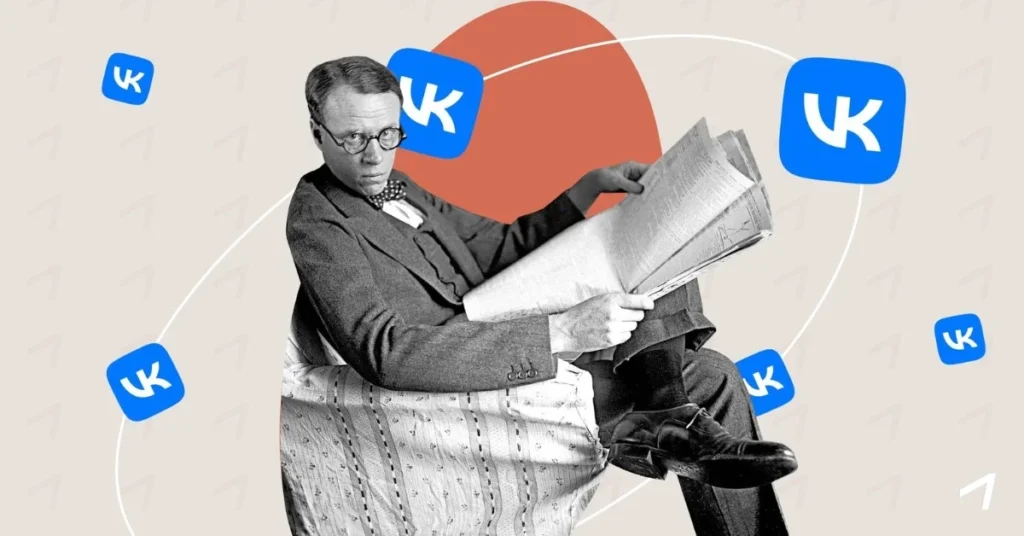
The Challenges and Conflicts that Shaped VKontakte’s History
- Initial Government Pressures:
- Growing Popularity Attracts Attention: As VKontakte (VK) grew to become Russia’s leading social network, it naturally attracted the attention of the Russian government. By the late 2000s, VK had become a crucial platform for information dissemination and social interaction, making it a key channel for political discourse. Its reach and influence made VK a significant player in shaping public opinion, something that did not go unnoticed by government officials.
- Demands for Censorship: The Russian government, known for its tight control over media and information, began pressuring VK to comply with requests for censorship. These demands included removing content critical of the government and restricting access to pages and groups associated with political opposition, activists, and protest movements.
- Pavel Durov’s Commitment to Free Speech:
- Defiance in the Face of Pressure: Pavel Durov, known for his staunch commitment to free speech and privacy, resisted these pressures. He believed that VK should remain a neutral platform, free from government interference. This stance put him in direct conflict with Russian authorities who were seeking to control the narrative on digital platforms.
- Symbolic Acts of Defiance: Durov’s resistance to government demands was not just behind the scenes. In 2011, during the aftermath of the Russian parliamentary elections, the government demanded that VK remove pages used to organize protests against alleged election fraud. In response, Durov posted a photo of a dog with its tongue out, wearing a hoodie, on his VK page—a gesture that was widely interpreted as a mocking rebuke of the authorities. This public act of defiance signaled Durov’s unwillingness to bow to censorship demands and solidified his image as a defender of digital freedom.
- The Turning Point: The 2014 Crisis:
- Refusal to Cooperate with Security Services: The situation escalated in 2014 when Russian authorities intensified their efforts to control online discourse, especially in the wake of the Ukrainian crisis and growing political unrest. Durov was asked to provide personal data on Ukrainian protesters and opposition leaders. He publicly refused, stating that complying with such requests would betray VK’s users and violate their privacy.
- Government Retaliation: Following Durov’s refusal, the Russian government increased pressure on VK, leveraging legal and financial threats. In a strategic move, VK’s ownership structure was altered, leading to more control being exerted by entities aligned with the Kremlin. This shift in control marked the beginning of the end of Durov’s leadership at VK.
- Durov’s Forced Resignation:
- Sudden Dismissal: On April 21, 2014, Pavel Durov announced that he had been fired from his position as CEO of VK. The company cited his resignation letter from earlier in the month, which Durov claimed was meant as a joke or an April Fool’s prank. Regardless, VK’s board moved to accept it, effectively ousting him from the company he had founded.
- Durov’s Reaction: In response to his removal, Durov made public statements alleging that VK had been taken over by Vladimir Putin’s allies and that his removal was a direct result of his refusal to comply with government demands. He accused the Kremlin of stifling free speech and declared that Russia was incompatible with his vision for an open internet.
- Exile and New Beginnings:
- Leaving Russia: Following his departure from VK, Durov left Russia, stating that he had “no plans to go back.” He viewed the environment in Russia as hostile to internet entrepreneurs who value freedom of expression. This decision marked a turning point in his life and career, leading him to seek a place where he could develop his projects free from governmental interference.
- Birth of Telegram: Durov’s experiences with government pressure and censorship at VK directly influenced his next venture. Determined to create a platform that was impervious to government control, he founded Telegram, an encrypted messaging service that prioritizes user privacy and security. Telegram’s success and its reputation as a bastion of free speech can be seen as a direct response to the challenges and conflicts Durov faced at VK.
His exit from VK and subsequent founding of Telegram represent his commitment to creating spaces where individuals can communicate without fear of censorship or surveillance, making Durov a symbol of resistance in the ongoing battle for internet freedom.
Creation and Development of Telegram
Why Pavel Durov Founded Telegram?
Faced with mounting government pressure and the ever-present threat of censorship, Pavel Durov set out to build a messaging platform that would stand as a fortress of privacy in a world increasingly bent on surveillance.
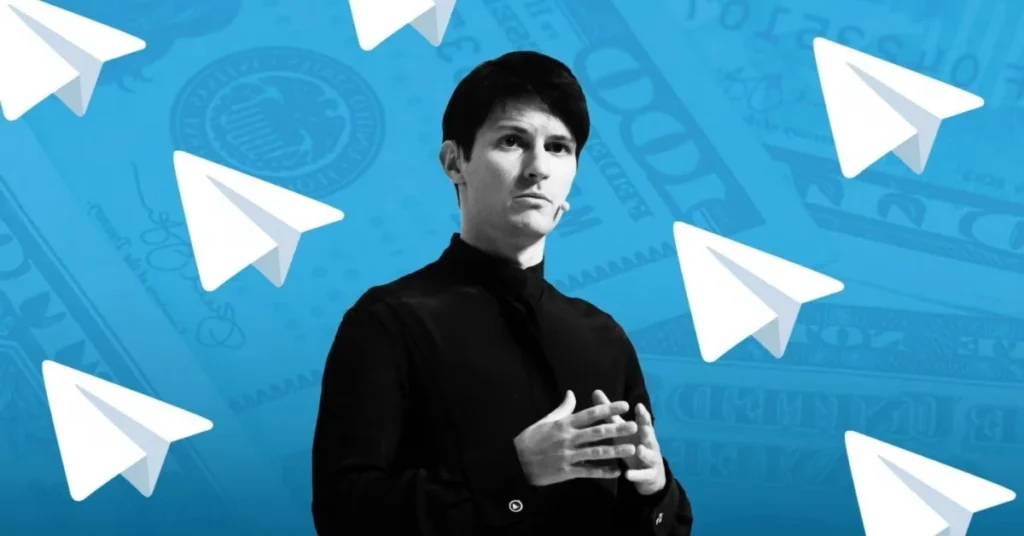
The Story Behind Telegram: Pavel Durov’s Motivations and Challenges
- Motivations Behind Creating Telegram:
- A Vision of Privacy and Freedom: Pavel Durov’s primary motivation for founding Telegram was his unwavering commitment to privacy and free speech. He envisioned a platform where people could communicate securely, without the fear of their conversations being intercepted, monitored, or censored by governments or third parties. Durov believed that everyone has a fundamental right to private communication, free from interference and surveillance.
- Learning from VK’s Experience: The challenges Durov faced while running VKontakte (VK) had a profound impact on his views about privacy and security. VK’s popularity made it a target for government scrutiny, leading to increasing demands for censorship and access to user data. These experiences underscored for Durov the need for a communication platform that could resist such pressures—one that was built from the ground up with privacy as its core principle.
- Inspired by Philosophical Ideals: Durov was also driven by his philosophical beliefs. He was inspired by libertarian principles, which emphasize minimal government interference and the importance of individual freedoms. These ideals were deeply embedded in his vision for Telegram, making it not just a product but a statement against the erosion of personal freedoms in the digital age.
- Challenges Faced in Russia Leading to Telegram’s Founding:
- Government Surveillance and Censorship: During his time with VK, Durov increasingly encountered demands from Russian authorities to monitor, censor, and control content on the platform. The Russian government sought to suppress dissent and control the narrative by accessing user data and censoring opposition voices. This environment of heightened surveillance and control was a significant challenge for Durov, who strongly opposed government intrusion into the private lives of citizens.
- The 2011-2012 Russian Protests: The widespread protests in Russia between 2011 and 2012 were a turning point. VKontakte was used extensively to organize demonstrations and share information, making it a target for government action. Authorities demanded that VK remove pages used to coordinate protests and provide user data. Durov’s refusal to comply with these demands brought him into direct conflict with the Russian government, solidifying his reputation as a defender of free speech.
- The 2014 Crisis and Durov’s Ouster from VK: In 2014, the situation escalated when the Russian government demanded that VK provide personal data on Ukrainian protesters during the Euromaidan movement. Durov’s refusal to hand over this information led to increased pressure from the Kremlin and his eventual ousting from VK. This experience was a catalyst for Durov, making him more determined than ever to create a platform that could not be easily manipulated or controlled by state actors.
- Founding Telegram: Building a Fortress of Privacy:
- Inception in 2013: Telegram was launched in 2013 as a response to the challenges Durov faced with VK and his desire to create a truly secure messaging platform. Telegram’s core architecture was designed to prioritize user privacy and security from the outset, employing end-to-end encryption to ensure that only the sender and recipient could read messages.
- Technical Leadership by Nikolai Durov: Pavel’s older brother, Nikolai Durov, played a crucial role in the development of Telegram. A mathematician and programmer, Nikolai was instrumental in designing Telegram’s encryption protocols, known as MTProto, which provided the strong security foundation that set Telegram apart from other messaging apps.
- Focus on User Control and Data Protection: Telegram was built with features that emphasized user control over their data. Users could set messages to self-destruct, manage their own encryption keys, and use secret chats for added security. These features made Telegram an attractive option for users concerned about privacy, especially in regions with heavy government surveillance.
- Telegram’s Role as a Symbol of Resistance:
- A Platform for Free Speech: Telegram quickly gained popularity among users who valued privacy and wanted a platform that did not bow to government demands for data access. It became a preferred tool for activists, journalists, and ordinary citizens seeking secure communication, particularly in countries with authoritarian regimes.
- Staying True to Core Values: Durov’s experience with VK taught him the importance of building a platform that was not only technically robust but also ethically aligned with the principles of privacy and freedom. Telegram’s success and Durov’s continued advocacy for user rights have made the platform a symbol of resistance against censorship and a champion of free speech in the digital age.
Pavel Durov’s journey from VK to Telegram reflects his unwavering commitment to privacy and free speech, shaped by the challenges he faced in Russia. The founding of Telegram was a direct response to his experiences with government surveillance and censorship, making it more than just a messaging app—it became a platform dedicated to protecting user rights and a bastion for secure, free communication.
>>> read more: Telegram Uncovered: A Deep Dive into Its Features and Uses
Nikolai Durov’s Role in Telegram
While Pavel Durov might be the face of Telegram, it’s his brother Nikolai who built the technical foundation that makes the app one of the most secure messaging platforms in the world.
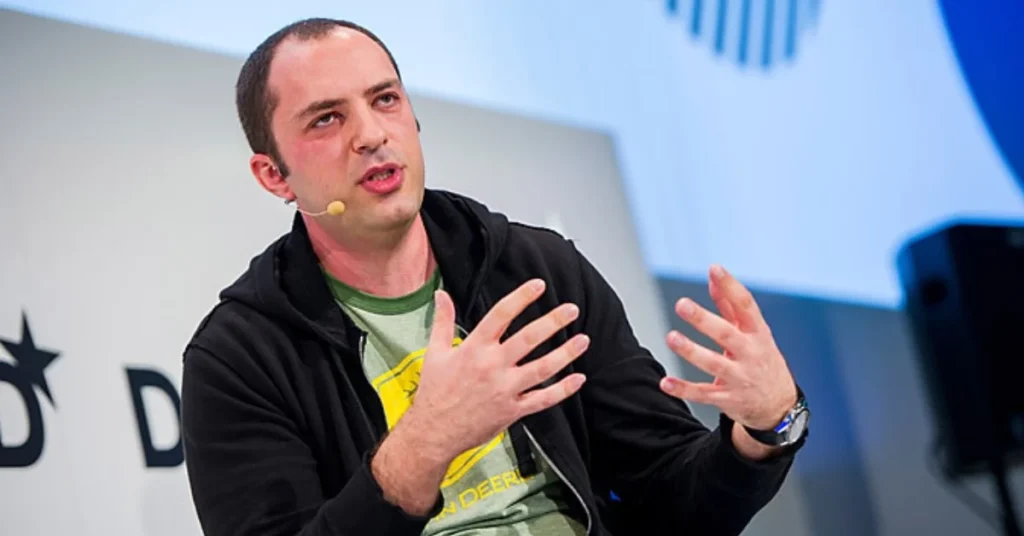
Who is Nikolai Durov?
Nikolai Durov is a Russian mathematician, programmer, and the elder brother of Pavel Durov. He co-founded VKontakte and Telegram, playing a crucial role in their technical development. Known for creating Telegram’s encryption protocol, Nikolai has been pivotal in ensuring the platform’s security.
Nikolai Durov: The Technical Genius Behind Telegram
- Background and Expertise:
- Academic Achievements: Nikolai Durov, the older brother of Pavel Durov, is not just a programmer but also a brilliant mathematician with an impressive academic background. He holds multiple PhDs in mathematics and has won numerous awards in international mathematics and programming competitions. His deep understanding of mathematical theories and computer science set him apart as a technical visionary.
- Prior Experience with VK: Before his work on Telegram, Nikolai played a critical role in the development of VKontakte (VK), Russia’s largest social networking site. His experience at VK provided him with practical insights into scaling social platforms and building robust digital infrastructures. This background equipped him with the knowledge to take on the ambitious task of developing Telegram’s core architecture.
- Development of Encryption Protocols (MTProto):
- Need for Secure Communication: The founding of Telegram was driven by a need for secure, private communication. To achieve this, Telegram needed a proprietary encryption protocol that could ensure messages were kept private and secure from interception. Nikolai Durov was tasked with developing this protocol.
- Designing MTProto: Nikolai designed the MTProto (Mobile Transport Protocol), the encryption protocol that underpins Telegram’s security. MTProto was engineered to provide fast and secure messaging, allowing users to send texts, media, and files without compromising speed or security. The protocol uses a combination of high-speed encryption algorithms to safeguard data while maintaining the efficiency required for real-time communication.
- Key Features of MTProto:
- End-to-End Encryption: MTProto supports end-to-end encryption for secret chats, ensuring that only the sender and recipient can read the messages. This type of encryption means that even Telegram’s servers cannot decrypt the messages, providing users with a high level of privacy.
- Layered Security: MTProto employs a layered approach to security, using a combination of symmetric AES encryption, asymmetric RSA encryption, and Diffie-Hellman secure key exchange. This robust cryptographic foundation makes it difficult for any third party to intercept and decipher messages.
- Efficient Data Handling: The protocol is designed to handle large amounts of data efficiently, which is crucial for a platform like Telegram that supports multimedia messaging. MTProto’s design allows for the quick transfer of files and media, contributing to Telegram’s popularity as a user-friendly and secure messaging app.
- Building the Technical Backbone of Telegram:
- Architecting a Scalable Infrastructure: Nikolai’s role extended beyond just encryption. He was responsible for building the entire technical infrastructure of Telegram, ensuring that the platform could scale to handle millions of users. His experience with VK was invaluable in this regard, providing insights into how to design a robust system capable of growing rapidly.
- Server Architecture and Data Distribution: To support global communication, Telegram’s architecture includes a distributed network of servers. Nikolai developed a system that uses multiple data centers around the world to ensure speed and reliability. This distributed approach not only improves performance but also enhances security by reducing the risk of data breaches.
- Optimizing for Speed and Reliability: One of Telegram’s standout features is its ability to deliver messages quickly, regardless of the user’s location. Nikolai’s work on optimizing data routing and server load balancing plays a crucial role in achieving this. His technical expertise ensures that Telegram can offer a seamless messaging experience even under heavy loads.
- Ongoing Role and Innovations:
- Continuous Improvement: Nikolai’s involvement with Telegram is not limited to its initial development. He continues to play a key role in the ongoing improvement and innovation of the platform’s security features. This commitment to continuous enhancement ensures that Telegram remains at the forefront of secure messaging technology.
- Responding to Security Threats: As new security threats emerge, Nikolai is instrumental in updating and refining Telegram’s protocols to address these challenges. His proactive approach to security helps Telegram maintain its reputation as one of the most secure messaging platforms available.
- Nikolai’s Legacy in Secure Communication:
- Pioneering Secure Messaging: Nikolai Durov’s development of MTProto and his role in building Telegram’s technical infrastructure have positioned him as a pioneer in secure messaging. His contributions have not only shaped Telegram but have also influenced how security is approached in the broader tech industry.
- Inspiring Other Platforms: The security and performance standards set by Nikolai’s work with Telegram have inspired other messaging platforms to prioritize user privacy and security. His approach to encryption and secure communication has set a benchmark that many other platforms strive to meet.
As the architect of MTProto and the technical backbone of Telegram, he has ensured that the platform meets the highest standards of security and reliability. His commitment to privacy and secure communication has made Telegram a trusted choice for users worldwide, setting a new benchmark for what a secure messaging app can achieve.
Telegram’s Core Features
In a world where digital privacy is increasingly compromised, Telegram has positioned itself as a fortress of secure communication, built around the pillars of privacy, encryption, and free speech.
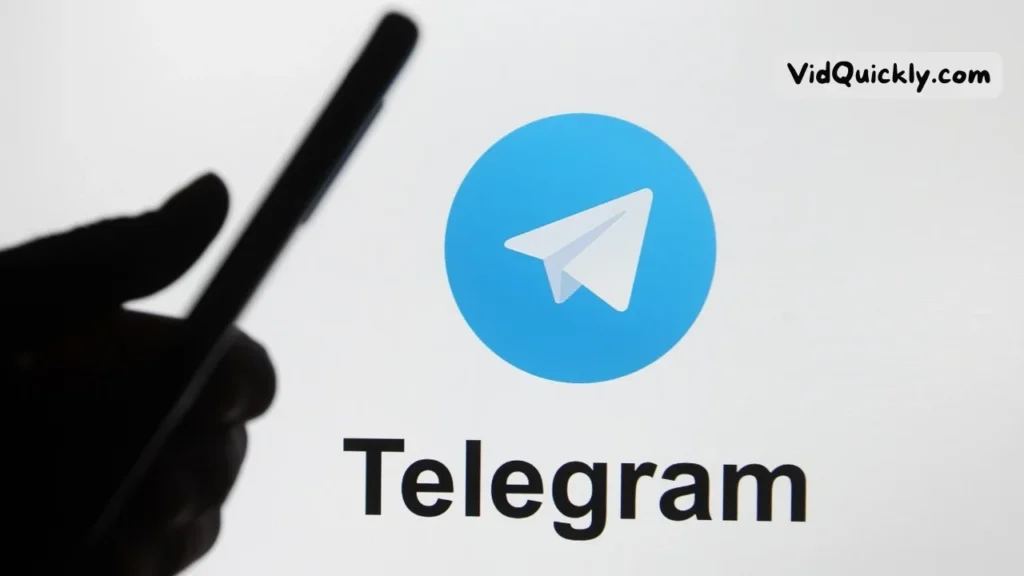
- Commitment to Privacy and Security:
- Privacy as a Foundational Principle: Telegram was designed with privacy at its core, a direct response to founder Pavel Durov’s experiences with government censorship and surveillance during his time at VKontakte (VK). Telegram’s commitment to user privacy is evident in its policies and features, which prioritize the protection of user data and the confidentiality of communications.
- End-to-End Encryption: One of Telegram’s standout features is its use of end-to-end encryption in its Secret Chats. This type of encryption ensures that only the communicating users can read the messages. Not even Telegram’s servers can decrypt these chats, providing a level of privacy that appeals to users who are particularly concerned about security and surveillance.
- Data Minimization: Telegram adopts a data minimization approach, meaning it collects as little user data as possible. This practice reduces the risk of data breaches and ensures that users’ personal information is not unnecessarily stored or accessible. For instance, messages stored on Telegram’s servers are heavily encrypted, and the keys are stored in different locations to further protect user data.
- Encryption Protocols:
- MTProto Protocol: Telegram’s encryption is powered by the MTProto protocol, developed by Nikolai Durov. MTProto is designed to provide a balance between high-speed communication and robust security. It combines symmetric encryption, asymmetric encryption, and secure key exchange to protect messages from interception and unauthorized access.
- Layered Security Approach: The MTProto protocol employs multiple layers of security to protect user data. This includes AES-256 symmetric encryption, RSA 2048 encryption, and Diffie-Hellman secure key exchange. These technologies work together to ensure that Telegram can offer a secure environment for messaging without sacrificing performance.
- Commitment to Free Speech:
- A Platform for Unrestricted Communication: Telegram’s founders, particularly Pavel Durov, have been vocal about their commitment to free speech. This platform is designed to allow users to express themselves freely, without fear of censorship or government interference. This commitment has made Telegram a popular choice among activists, journalists, and individuals in countries with strict censorship laws.
- Neutral Stance on Content Moderation: Telegram’s approach to content moderation is relatively hands-off compared to other platforms. While it does take action against clearly illegal activities (such as child exploitation or terrorist content), Telegram generally refrains from censoring content based on political or ideological views. This stance has drawn both praise for upholding free speech and criticism for not doing enough to prevent the spread of harmful content.
- Public Channels, Private Chats, and Group Communication:
- Public Channels: Telegram’s public channels allow users to broadcast messages to large audiences. Channels can have unlimited subscribers and are commonly used by media outlets, celebrities, and influencers to share news, updates, and content with their followers. These channels function similarly to a social media feed, making Telegram not just a messaging app but also a tool for content dissemination.
- Private Chats: Telegram offers two types of private messaging: regular cloud-based chats and Secret Chats. Regular chats are encrypted and stored on Telegram’s servers, accessible from multiple devices. In contrast, Secret Chats use end-to-end encryption, are only available on the devices of the sender and recipient, and cannot be accessed from the cloud. This feature appeals to users who need a higher level of security for sensitive communications.
- Group Communication: Telegram supports group chats with up to 200,000 members, making it ideal for community building, organizational communication, and large-scale discussions. Groups can be public or private, and administrators have various tools to manage content, moderate discussions, and ensure a smooth communication experience. The ability to host such large groups sets Telegram apart from many other messaging platforms and enhances its utility as a communication tool.
- Additional Privacy Features:
- Self-Destructing Messages: Telegram allows users to send self-destructing messages in Secret Chats. These messages automatically delete after a specified time, ensuring that sensitive information does not remain on the devices of either party for longer than necessary.
- Passcode Lock and Two-Step Verification: For added security, Telegram provides a passcode lock feature, preventing unauthorized access to the app. Additionally, users can enable two-step verification, adding an extra layer of security by requiring a password in addition to a phone number for logging in.
- Cross-Platform Accessibility and Synchronization:
- Cloud-Based Messaging: Telegram’s cloud-based messaging allows users to access their messages from multiple devices simultaneously. This feature ensures that users can seamlessly switch between their smartphones, tablets, and computers without losing access to their chat history.
- Cross-Platform Availability: Telegram is available on various platforms, including iOS, Android, Windows, macOS, and Linux. This cross-platform support ensures that users can stay connected regardless of the device they are using, making Telegram a versatile tool for both personal and professional communication.
By offering robust encryption, flexible communication options, and tools to manage privacy, Telegram caters to a wide range of users, from individuals seeking secure personal communication to large organizations and communities.
Telegram’s Global Reach
From its inception as a secure communication tool, Telegram has grown into a global messaging giant, connecting over 900 million users and influencing social and political landscapes across continents.
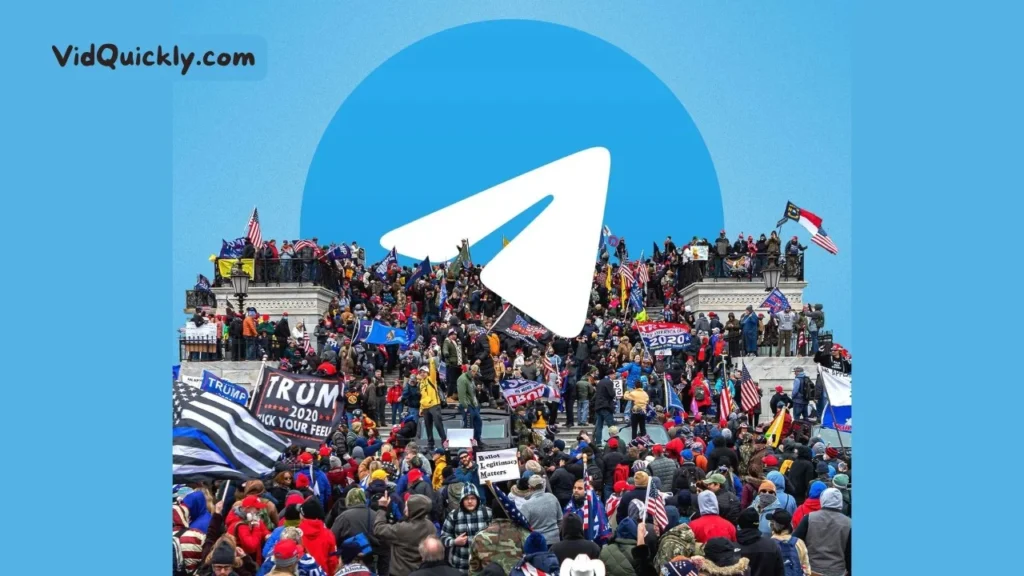
- Explosive User Base Growth:
- Initial Growth: Since its launch in 2013, Telegram has seen rapid user adoption, driven by its strong emphasis on privacy, security, and free speech. Initially, the platform gained popularity among tech enthusiasts and privacy advocates who valued Telegram’s robust encryption and commitment to protecting user data.
- Exponential Growth Milestones: Over the years, Telegram’s user base has grown exponentially, surpassing major milestones. By early 2021, Telegram had already reached 500 million active users. The platform continued to gain traction, especially during times when users sought alternatives to more mainstream messaging apps due to privacy concerns. As of 2024, Telegram boasts over 900 million users globally, making it one of the largest messaging platforms in the world.
- Key Regions of Influence:
- Russia:
- Cultural and Political Significance: Telegram’s popularity in Russia is partly due to its origins. As a platform founded by Pavel Durov, a prominent Russian entrepreneur, Telegram naturally attracted a Russian user base from the beginning. However, beyond its origins, Telegram’s emphasis on privacy and free speech resonated strongly in Russia, where government surveillance and censorship are prevalent concerns.
- Government Attempts to Ban Telegram: Telegram’s stance on privacy has led to conflicts with Russian authorities. In 2018, the Russian government attempted to block Telegram after the company refused to provide encryption keys to the Federal Security Service (FSB). Despite these efforts, Telegram remained widely accessible due to various technical workarounds, and the ban was lifted in 2020. This conflict enhanced Telegram’s reputation as a platform that stands up to government overreach, further solidifying its user base in Russia.
- Iran:
- A Tool for Communication in a Restricted Environment: Telegram is immensely popular in Iran, where it serves as a vital communication tool in an environment characterized by strict government control over information. With over 50 million users in Iran, Telegram has become a primary means of communication for many Iranians, providing a platform for sharing news, organizing events, and even conducting business.
- Role in Political Movements: Telegram has played a significant role in political movements and protests in Iran. During periods of civil unrest, Telegram’s encrypted communication and public channels have been used by activists to organize protests and share information. This has led to government attempts to restrict access to Telegram, but the platform remains a key communication tool for Iranians seeking uncensored news and secure conversations.
- Hong Kong:
- Platform for Protesters: Telegram’s popularity in Hong Kong surged during the 2019–2020 pro-democracy protests. Protesters turned to Telegram for its encrypted messaging capabilities and public channels, which allowed them to coordinate protests and share real-time updates while evading government surveillance. Telegram’s ability to facilitate secure, large-scale communication made it an invaluable tool for activists in Hong Kong.
- Anonymity and Safety: In Hong Kong, where anonymity is crucial for the safety of activists, Telegram’s privacy features provided a layer of protection. Users could communicate and organize without revealing their identities, reducing the risk of retaliation or arrest. Telegram’s role in the Hong Kong protests showcased its importance as a tool for secure communication in politically sensitive situations.
- Russia:
- Global Adoption and Usage Patterns:
- Wide Appeal Beyond Activism: While Telegram is known for its use in activism and political movements, its appeal extends far beyond these contexts. The platform’s user-friendly interface, multimedia sharing capabilities, and extensive customization options make it popular for everyday communication among friends, family, and professional groups. Telegram’s focus on privacy and security resonates with users globally, who are increasingly aware of data privacy issues.
- Regional Popularity: Apart from Russia, Iran, and Hong Kong, Telegram has significant user bases in countries such as India, Indonesia, Brazil, and various parts of Europe. The platform’s adaptability to different languages and cultures, along with features that cater to local preferences, contributes to its widespread adoption. In countries where access to global platforms is restricted, Telegram often emerges as a favored alternative.
- Key Factors Driving Telegram’s Global Reach:
- Data Privacy Concerns: Growing concerns about data privacy and security breaches on other platforms have driven users to seek out alternatives like Telegram, which offers end-to-end encryption and does not share user data with third parties. This reputation for strong security has been a significant factor in Telegram’s global growth.
- Shift from Competitors: Several waves of new users joined Telegram following controversial updates to privacy policies by competing platforms, such as WhatsApp. In these moments, Telegram positioned itself as the privacy-focused alternative, leading to surges in user registrations.
- Flexibility and Features: Telegram’s broad range of features, including large group chats, public channels, bots, and customizability, appeals to various user needs. Whether for casual conversations, business communication, or organizing large-scale public movements, Telegram’s versatile capabilities attract a diverse global audience.
With a user base that exceeds 900 million, Telegram has established itself as a critical communication tool in politically sensitive regions like Russia, Iran, and Hong Kong. Its robust security features, coupled with versatile functionality, continue to attract users worldwide, making Telegram a leading platform in the ever-evolving landscape of digital communication.
Public Perception and Legacy
Public Image and Media Representation
Pavel Durov, the mind behind VKontakte and Telegram, is portrayed as a modern-day maverick in the tech world, revered for his commitment to privacy and criticized for the challenges that come with his libertarian ideals.

Media Representation
- “The Russian Mark Zuckerberg”: Durov is often referred to as the “Russian Mark Zuckerberg” due to his role in founding VKontakte, a social networking site that quickly became the most popular platform in Russia, akin to Facebook. This comparison highlights his influence in the tech industry and positions him as a leading figure in social media innovation.
- Libertarian Advocate: Durov’s strong libertarian beliefs resonate through his public statements and actions. He has been vocal about the importance of free speech and user privacy, positioning Telegram as a platform that prioritizes these values. This stance has garnered him support from digital rights advocates and users seeking secure communication.
- Controversial Figure: Durov’s refusal to comply with Russian government demands regarding user data and content moderation has led to significant backlash from authorities. His defiance, particularly during the 2011 protests in Russia, where he resisted pressure to remove opposition pages from VKontakte, has contributed to his image as a rebellious entrepreneur willing to stand up against censorship.
- Minimalist Lifestyle: Durov’s ascetic lifestyle and preference for simplicity are frequently highlighted in media portrayals. He is known for wearing all black clothing, resembling the character Neo from “The Matrix,” and for his commitment to a vegetarian diet while abstaining from alcohol and drugs. This lifestyle choice aligns with his beliefs in personal freedom and minimalism.
Public Support
- Digital Rights Advocacy: Durov has received considerable support from users who appreciate his commitment to privacy and free speech. Telegram’s strong encryption features and refusal to hand over user data to governments have made it a preferred platform for activists and those living under oppressive regimes.
- Recognition and Awards: Throughout his career, Durov has been recognized for his contributions to technology and his stance against censorship. He has received accolades such as being named one of the “40 Under 40” by Fortune magazine and being awarded by the Union of Kazakhstan’s Journalists for his principled position against state interference in online communication.
- Global Influence: Durov’s influence extends beyond Russia, particularly in regions like Iran and Hong Kong, where Telegram has become a vital tool for organizing protests and sharing information. His role in facilitating communication during these critical moments has further solidified his reputation as a champion of digital rights.
Criticism
- Government Backlash: Durov has faced significant criticism from the Russian government, which has attempted to block Telegram and impose regulations on the platform. His refusal to comply with demands to monitor user activity and censor content has led to legal challenges and accusations of enabling criminal activities.
- Allegations of Extremism: Telegram’s lack of content moderation has drawn scrutiny, with critics accusing the platform of being used for illegal activities, including the spread of extremist content. Durov’s defense of user privacy has led to debates about the responsibilities of tech companies in moderating harmful content.
- Recent Controversies: Durov’s arrest in France in August 2024 on charges related to money laundering and drug trafficking has raised questions about his business practices and personal conduct. This incident has generated negative media coverage and could impact his public image moving forward.
Impact on Technology and Society
Pavel Durov’s commitment to privacy and free communication has not only revolutionized how people interact online but has also set new standards for digital rights in an increasingly connected world.
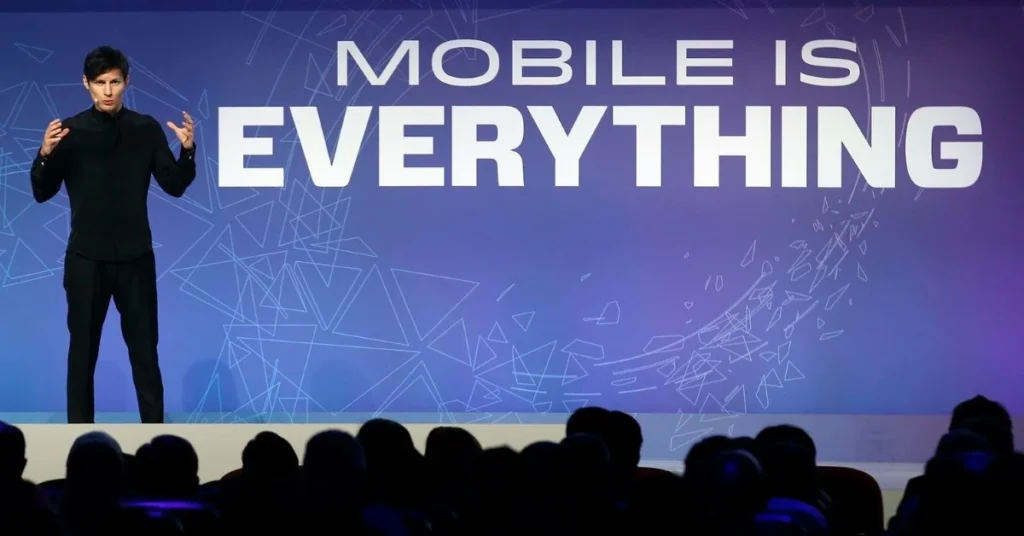
Influence on Digital Privacy
- Advocacy for User Privacy: Durov has positioned Telegram as a champion of privacy, emphasizing the importance of secure communication in an era of increasing surveillance. The platform’s end-to-end encryption and commitment to protecting user data have made it a preferred choice for individuals seeking to avoid government scrutiny and corporate data harvesting.
- Resisting Government Pressure: Telegram has consistently resisted government requests for access to user data, representing a barrier against mass surveillance. This stance has resonated with users in authoritarian regimes, where privacy is often compromised. Durov’s defiance has inspired other tech companies to consider their own policies regarding user data and government compliance.
- Impact on Digital Rights: The ongoing debates surrounding Durov’s arrest and Telegram’s role in facilitating communication for various groups highlight the complexities of digital rights. His case underscores the challenges that privacy-focused platforms face in balancing user protection with legal obligations, raising questions about the future of digital privacy in a regulated environment.
Communication and Social Media
- Revolutionizing Messaging: Telegram’s unique features, such as support for large groups, channels, and bots, have transformed how people communicate online. The platform’s ability to facilitate real-time communication and information sharing has made it a vital tool for activists, journalists, and everyday users alike.
- Role in Social Movements: Telegram has played a crucial role in organizing protests and social movements around the world. Its use during the 2019 Hong Kong protests and other significant events illustrates the platform’s capacity to empower users and facilitate grassroots organizing, making it a powerful tool for social change.
- Challenges of Moderation: While Telegram’s focus on privacy has garnered support, it has also led to criticism for its perceived lack of moderation. The platform has been accused of enabling extremist groups and illegal activities, prompting discussions about the responsibilities of tech companies in moderating content while respecting user privacy.
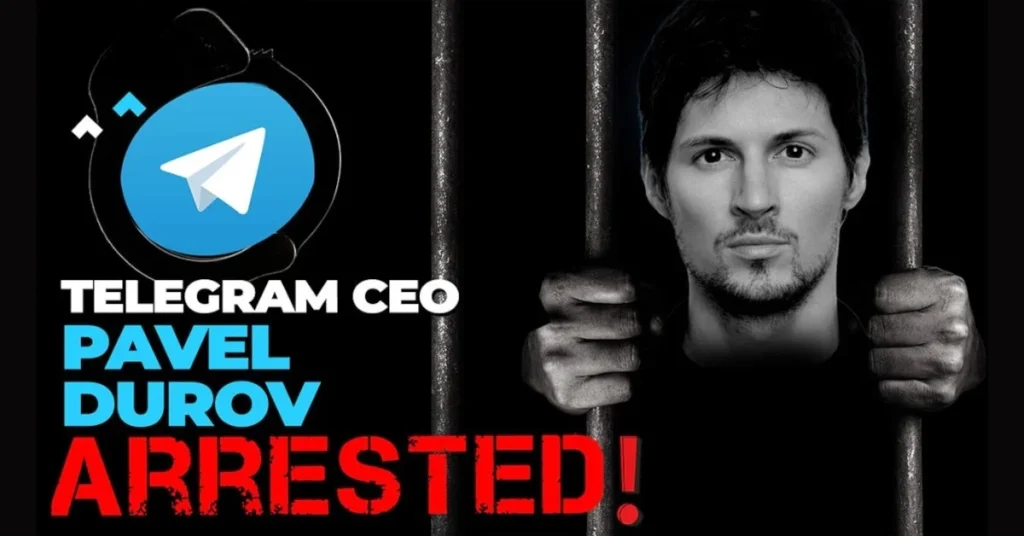
Conclusion
Ready to take your Telegram game to the next level? Understanding Pavel Durov’s journey isn’t just about knowing the history of the platform—it’s about unlocking the strategies and mindset that could help you cash in on your content. Whether you’re downloading socials videos to remix and monetize or exploring how to profit directly from Telegram, Durov’s story is a blueprint for digital success.
But this is just the beginning. There’s so much more to learn from the masterminds behind the biggest social networks. How did they build their empires? What can you take away from their success stories to level up your own hustle?
Don’t stop here—keep exploring with VidQuickly’s blog. Check out our other tutorials and get inspired by the visionaries shaping the digital world. Your next big break could be just one read away!
Frequently Asked Questions (FAQs)
Where does Pavel Durov live?
Pavel Durov moved to the United Arab Emirates in 2017 and currently lives in Dubai, where Telegram’s headquarters are located. He was naturalized as an Emirati citizen in February 2021
How does Pavel Durov make money?
Pavel Durov’s net worth is primarily driven by his ownership of Telegram. He co-founded the social network VK in 2006, which he later left after a conflict with the new owners and pressure from Russian authorities. Telegram, which Durov and his brother Nikolai created in 2013, claims a high level of data privacy and has grown to over 900 million users.
How to contact Pavel Durov?
There is no publicly available information on how to directly contact Pavel Durov. As the founder of Telegram, he maintains a private life and has not shared contact details.

